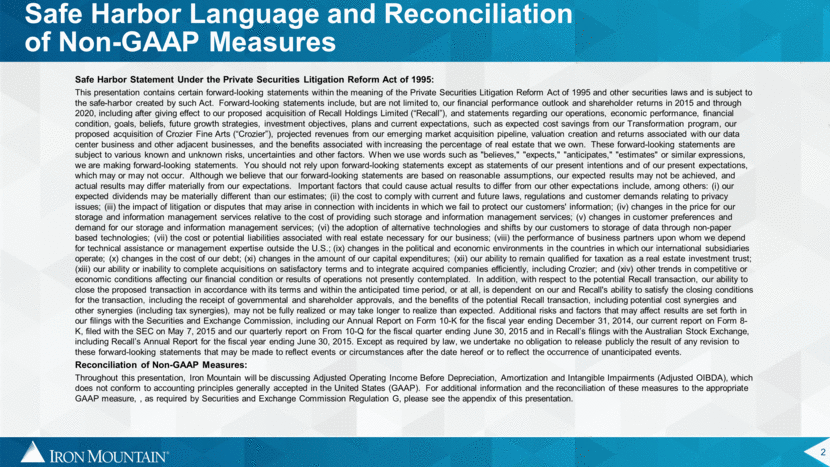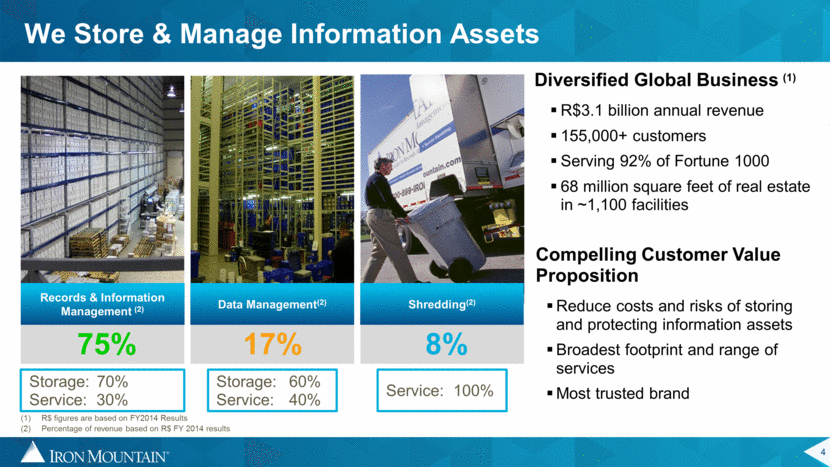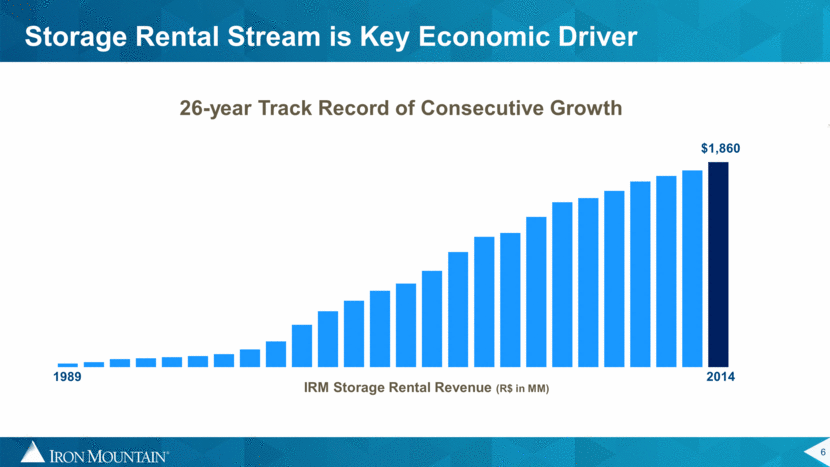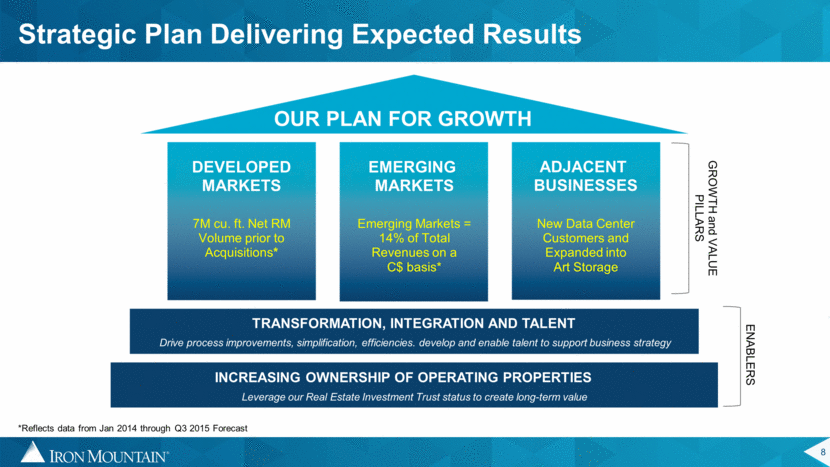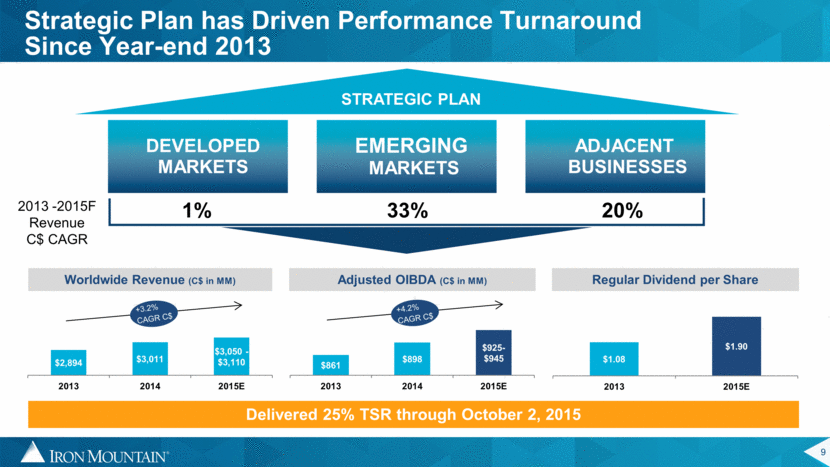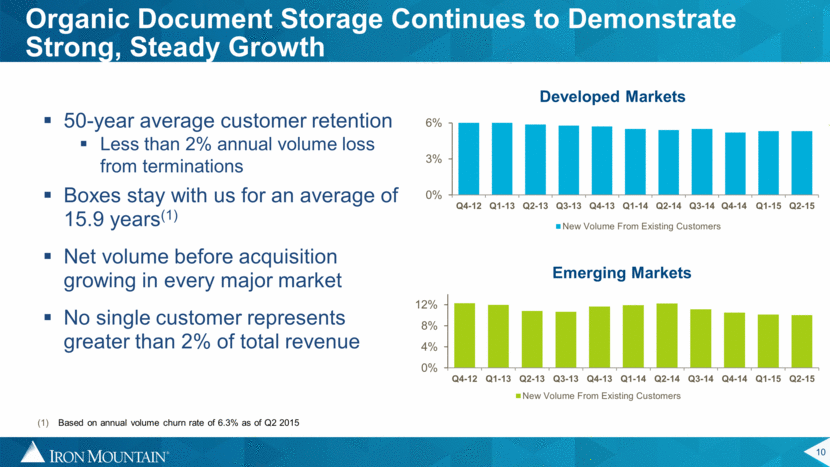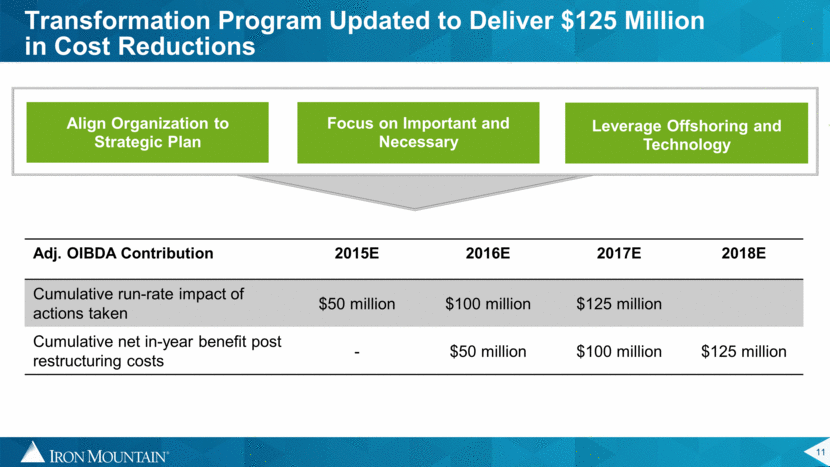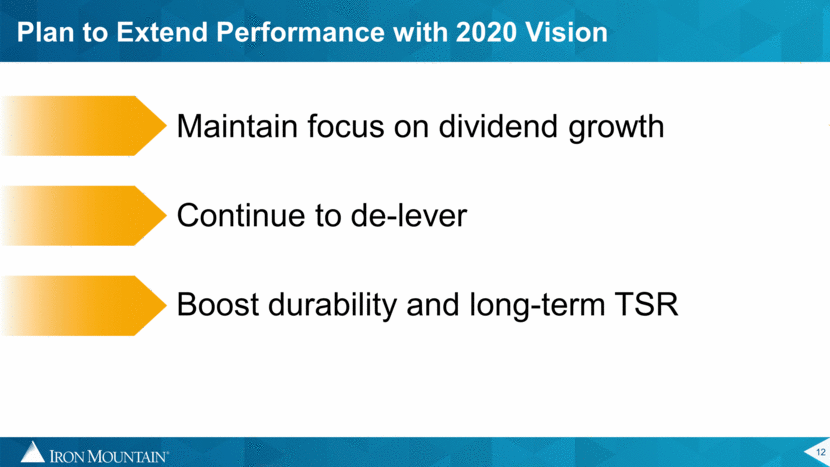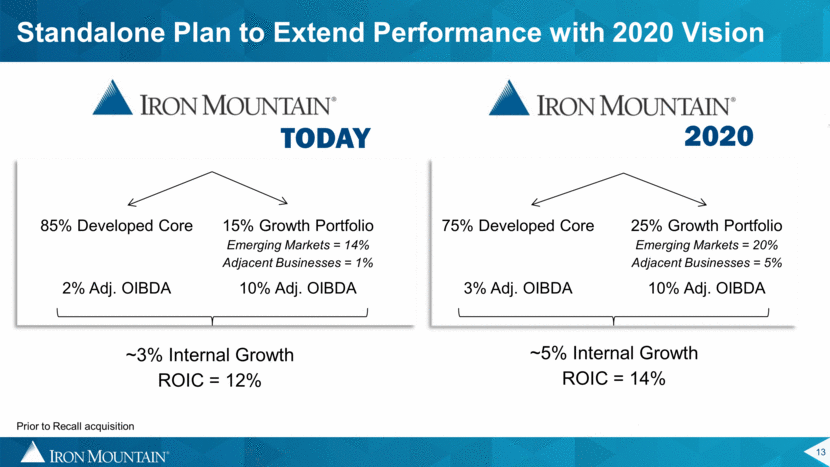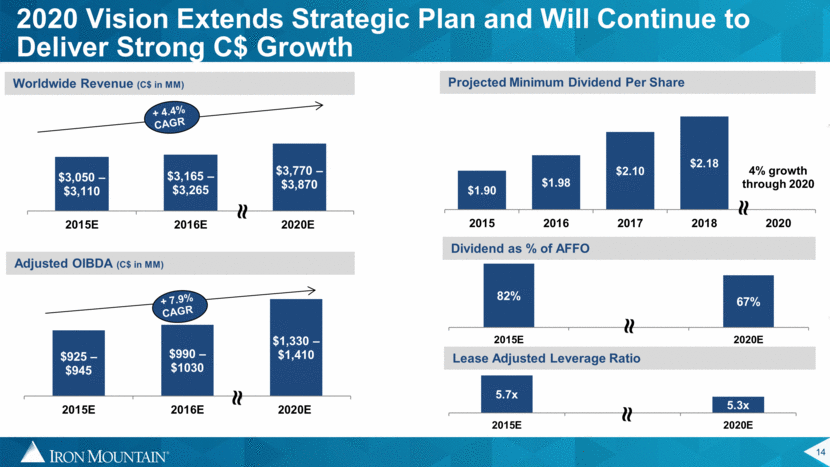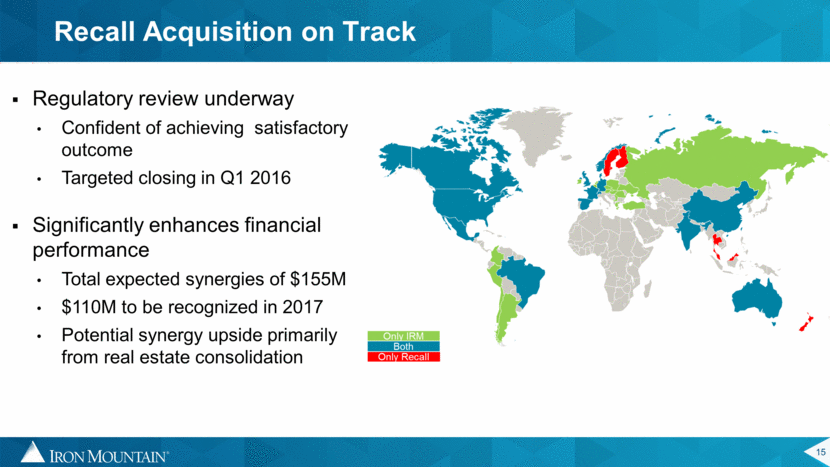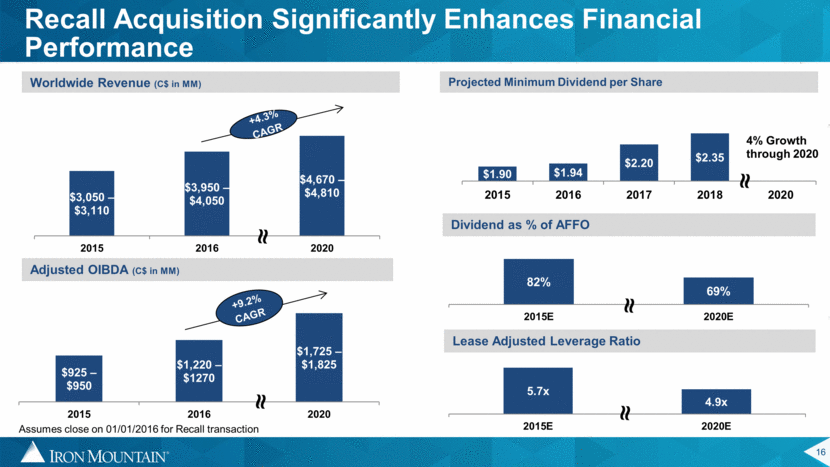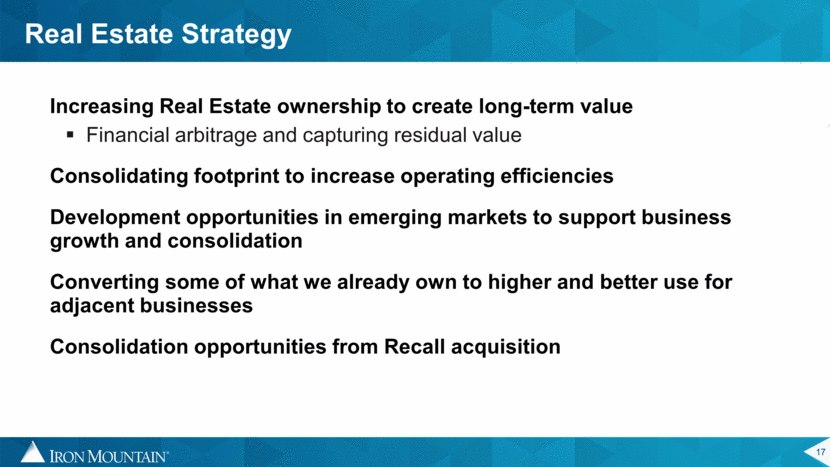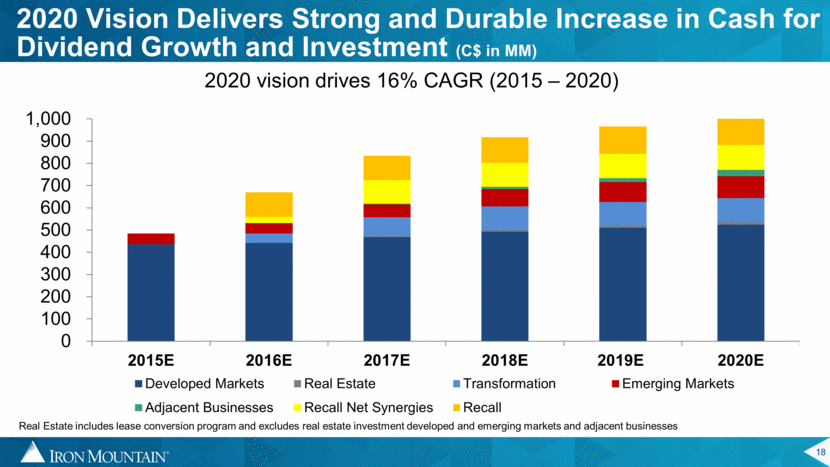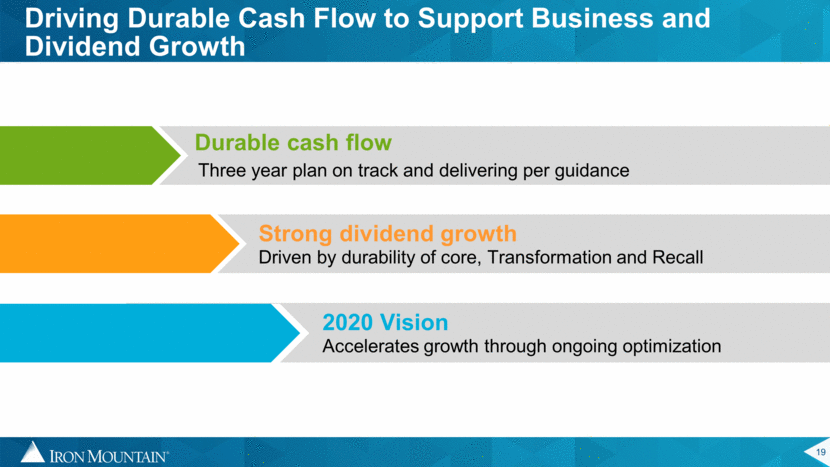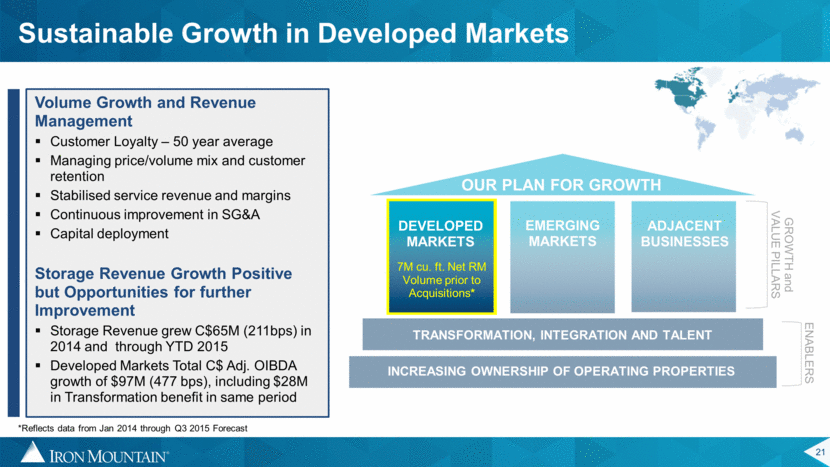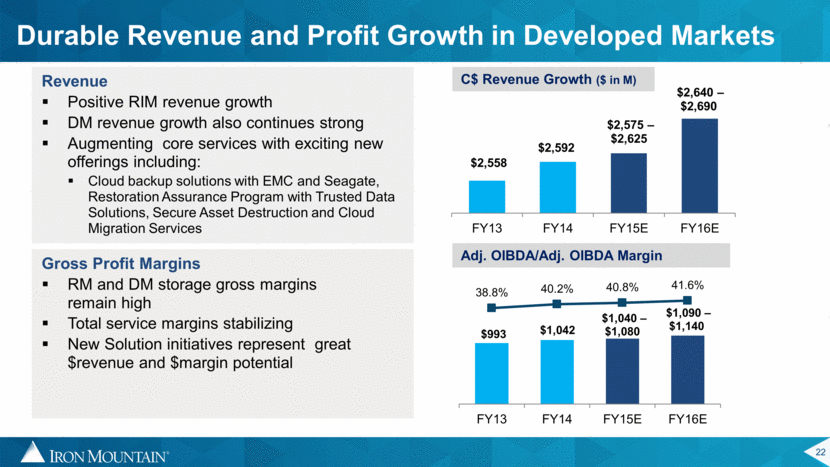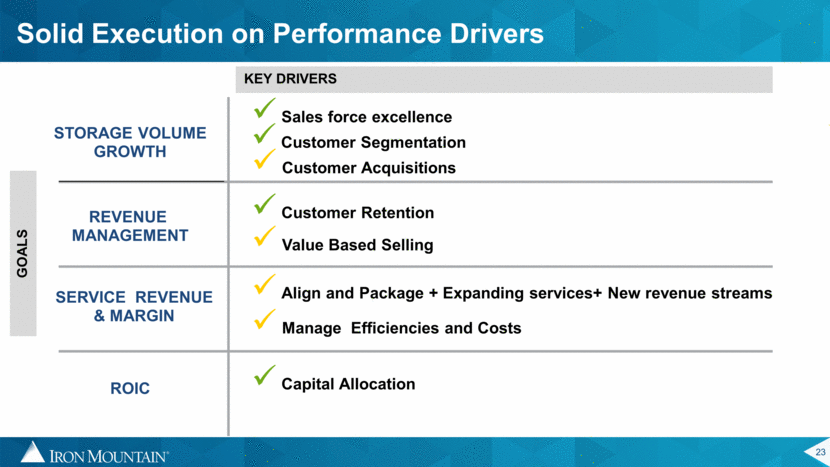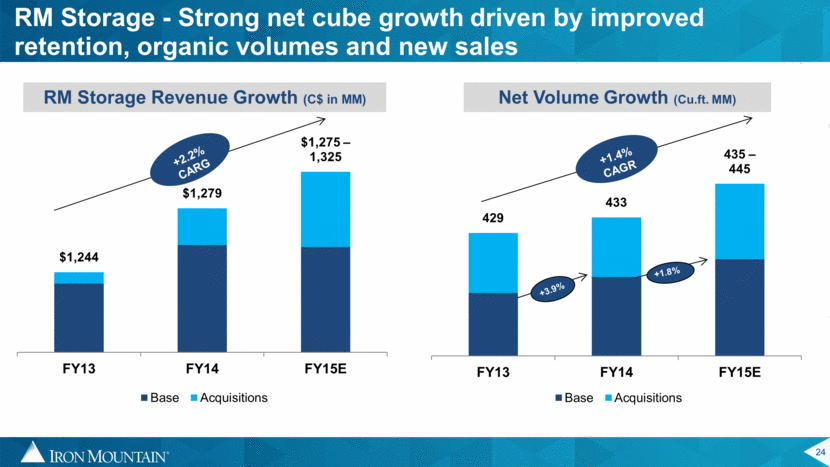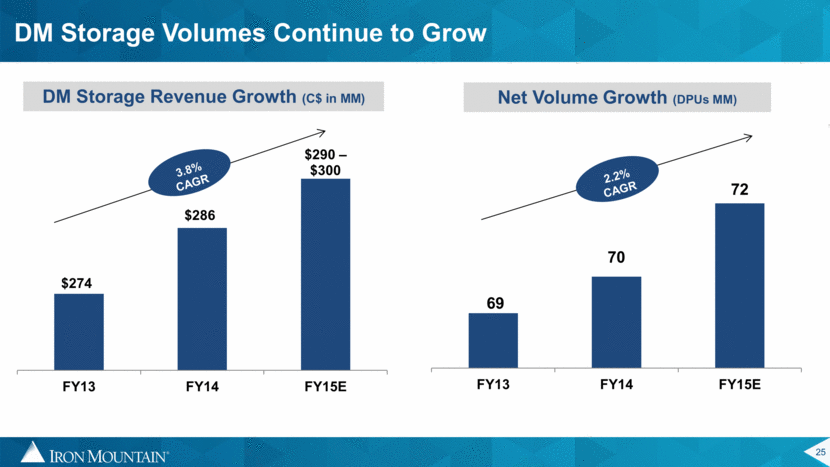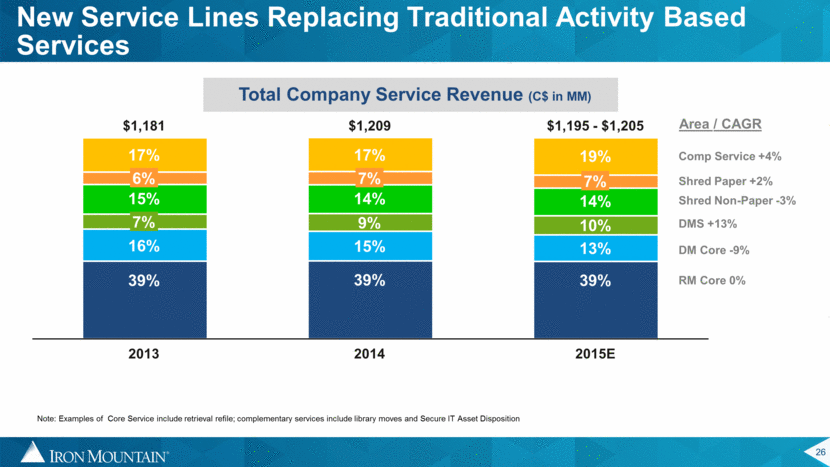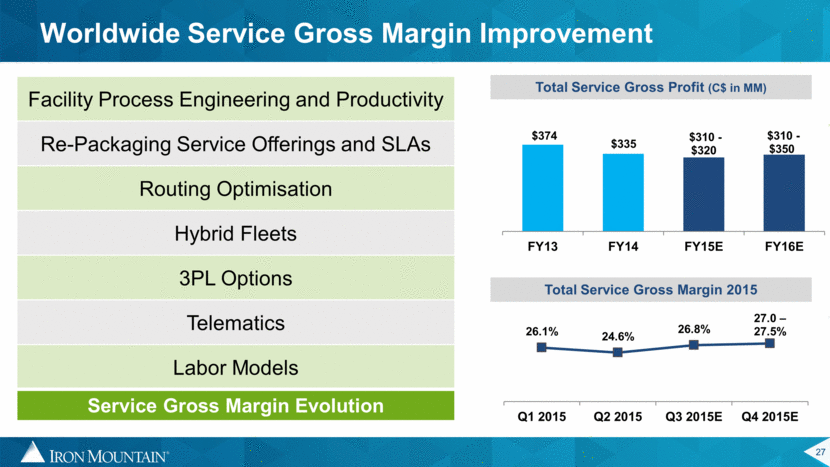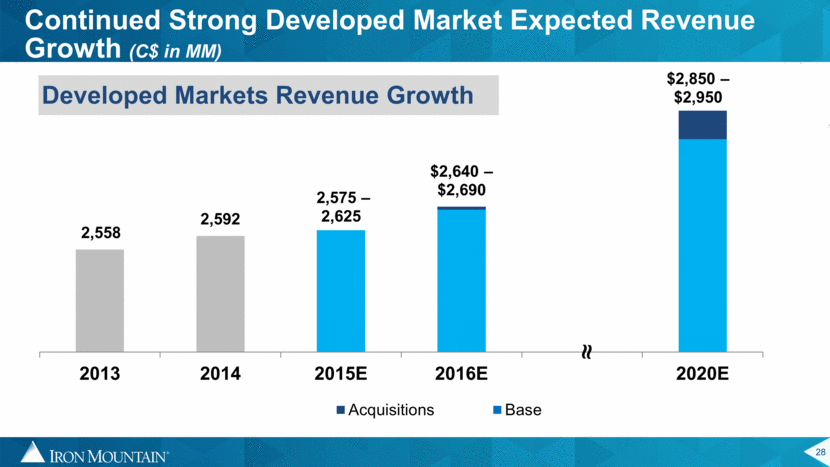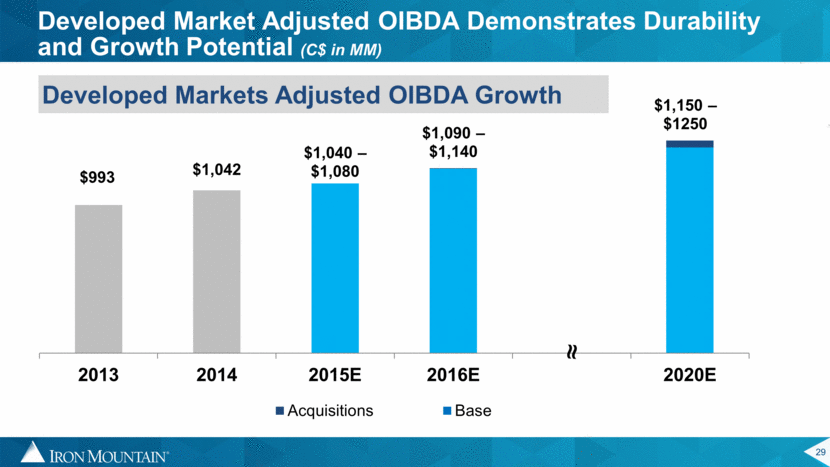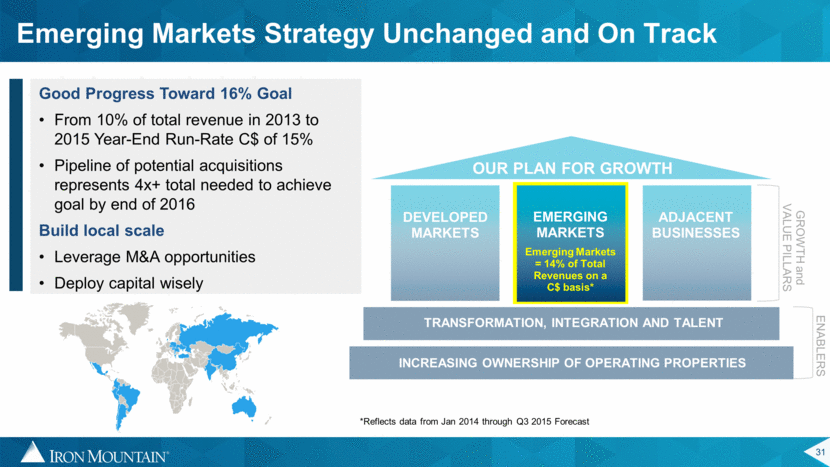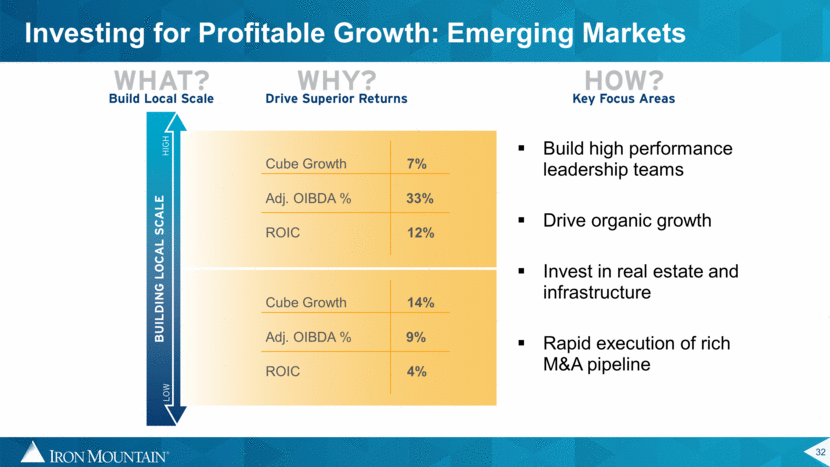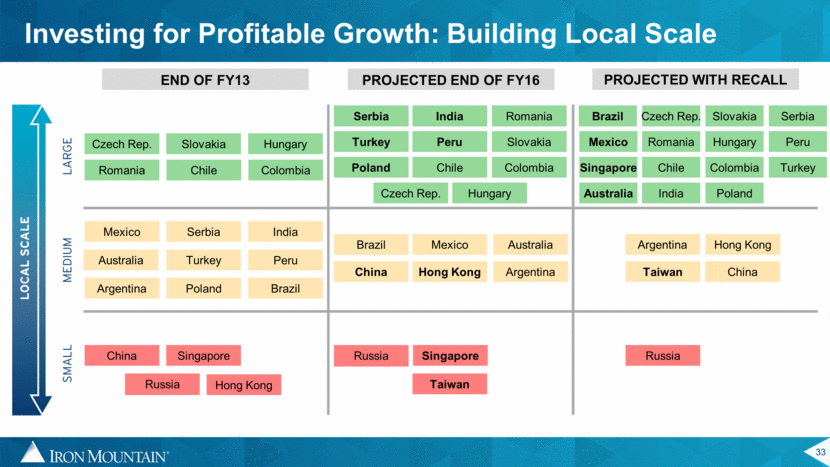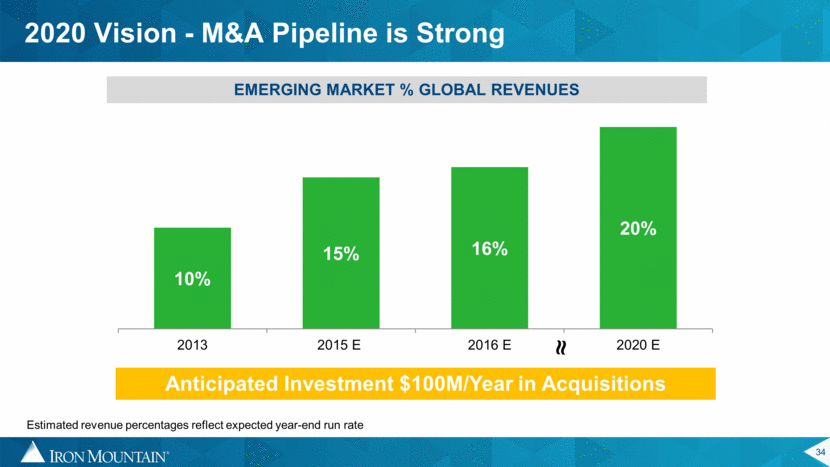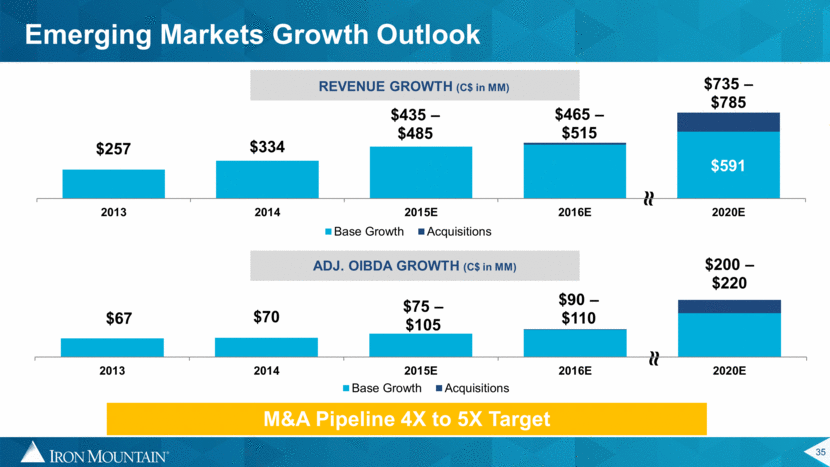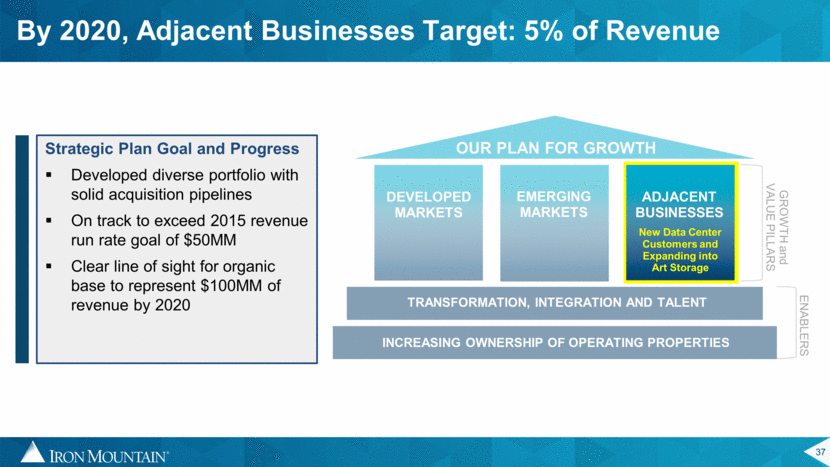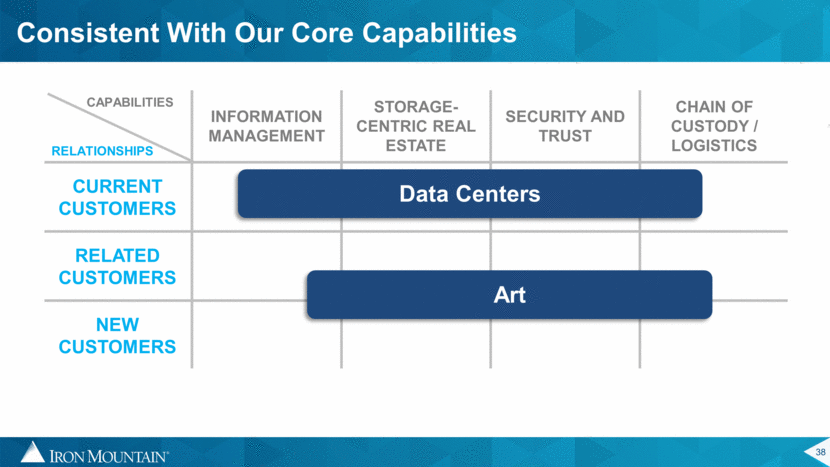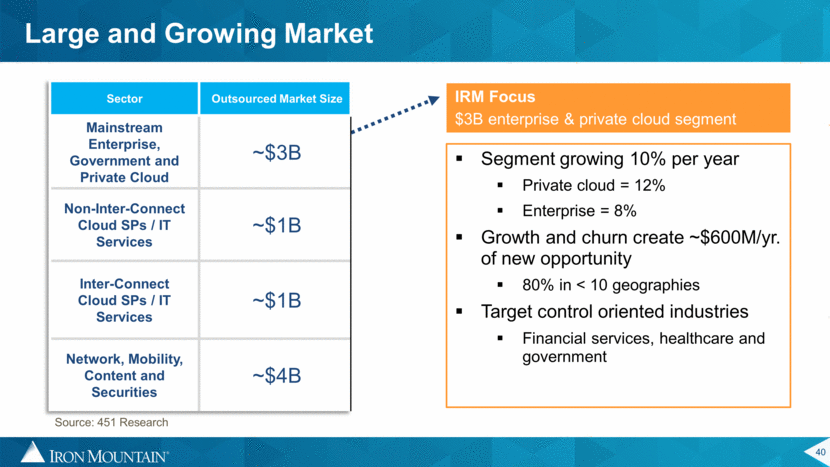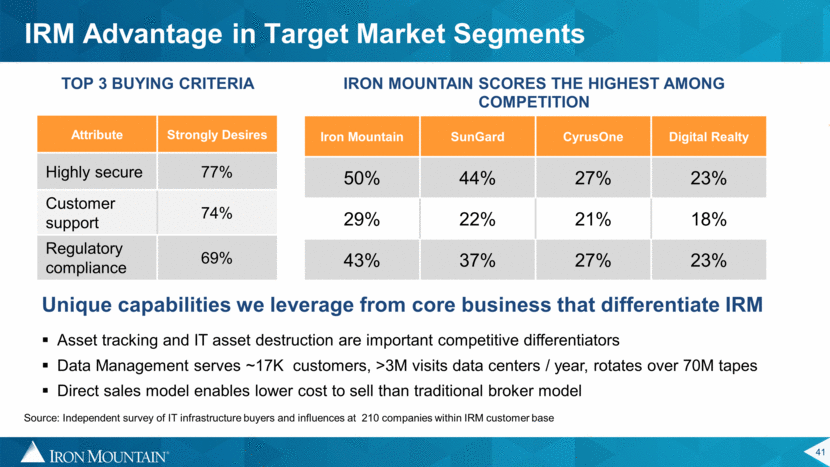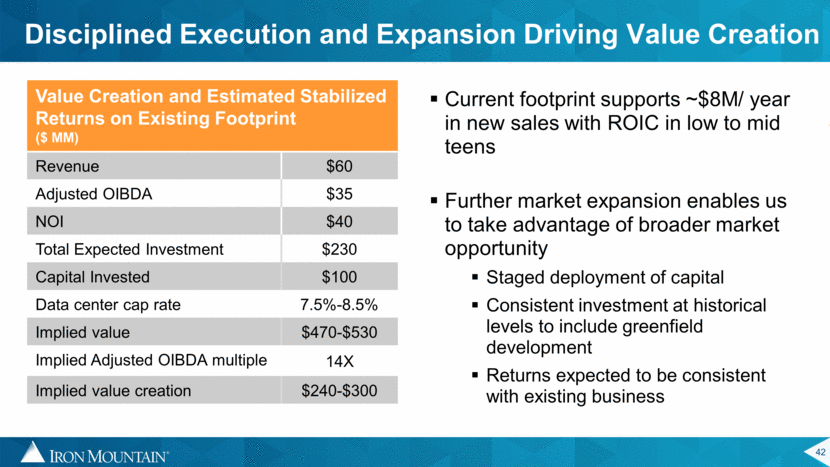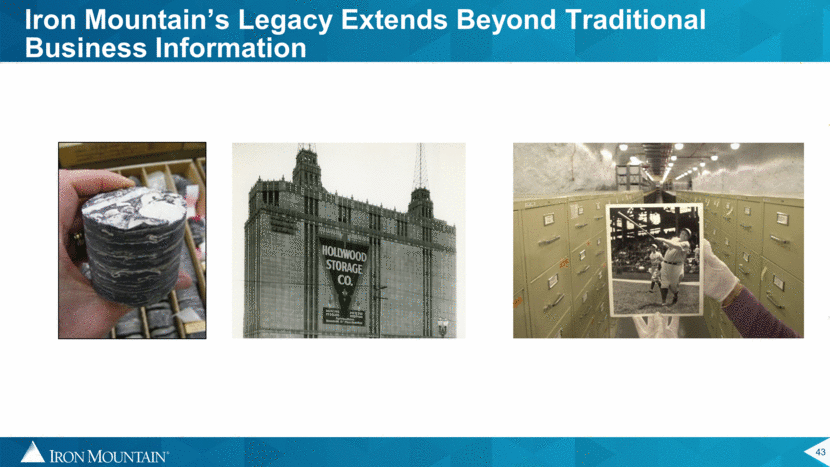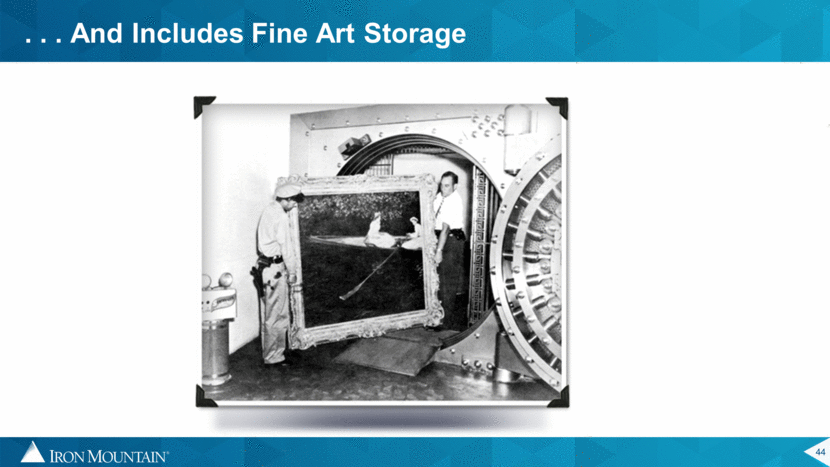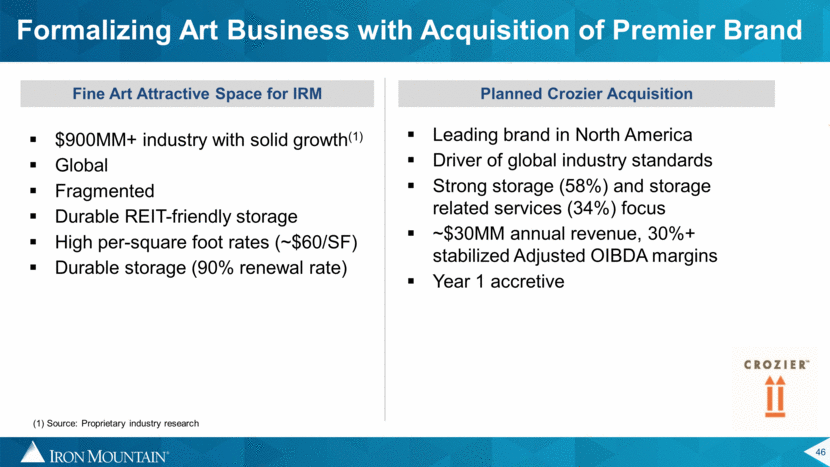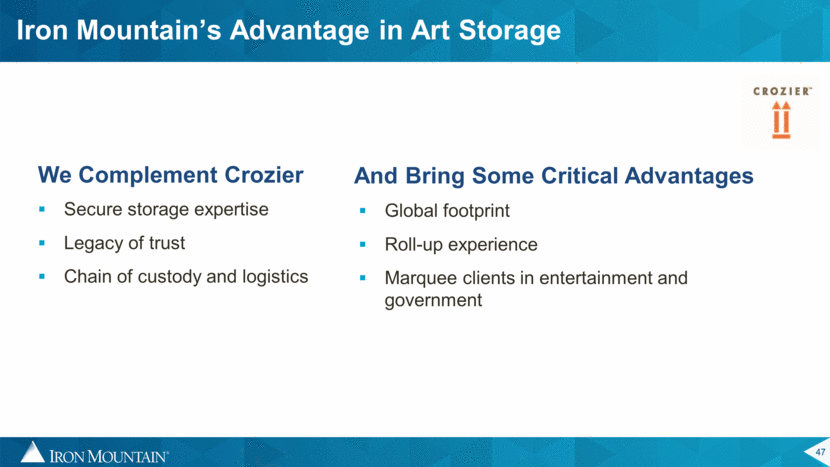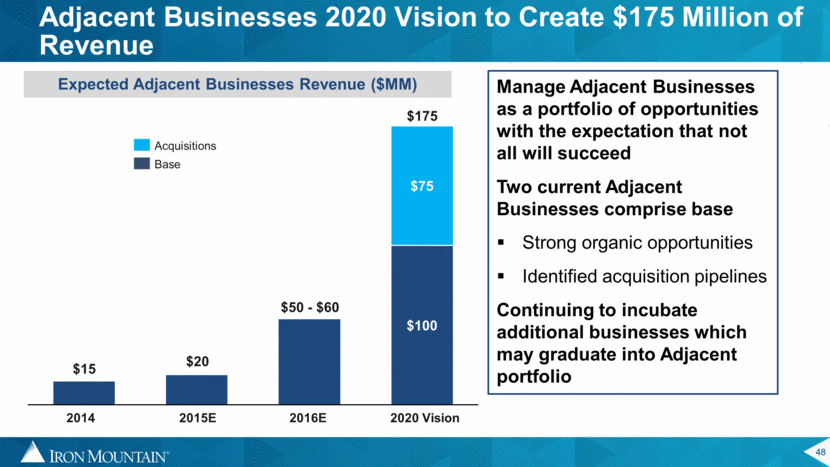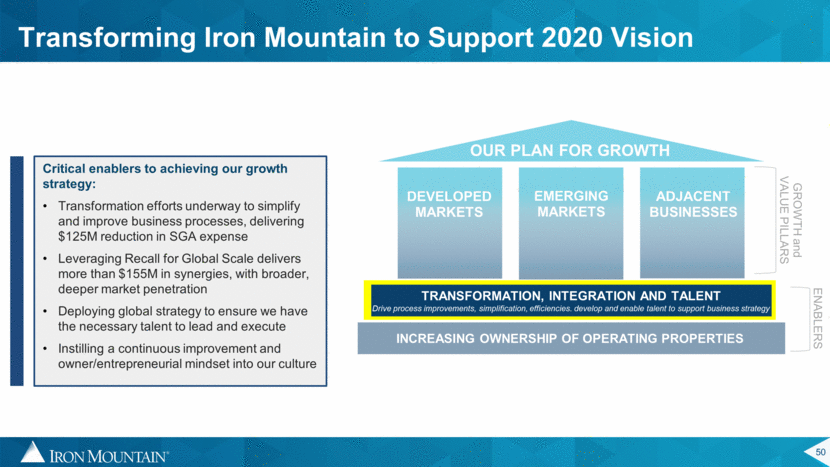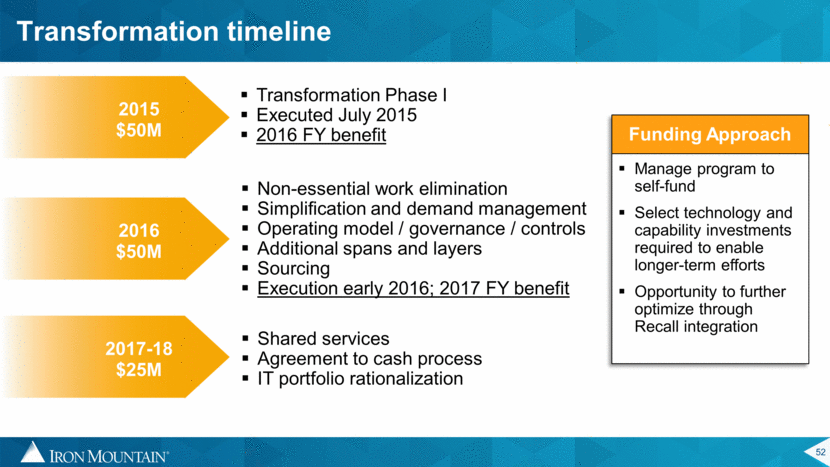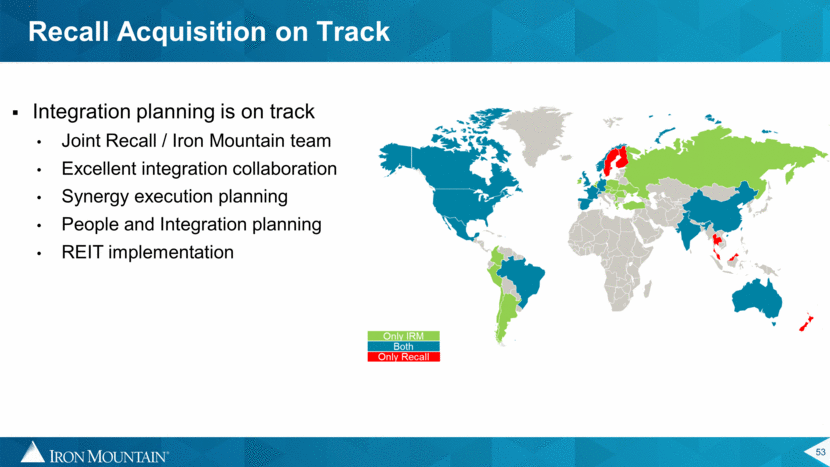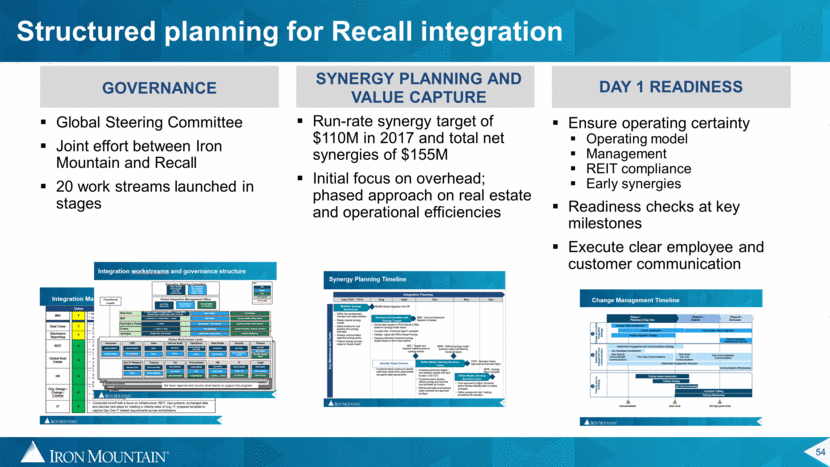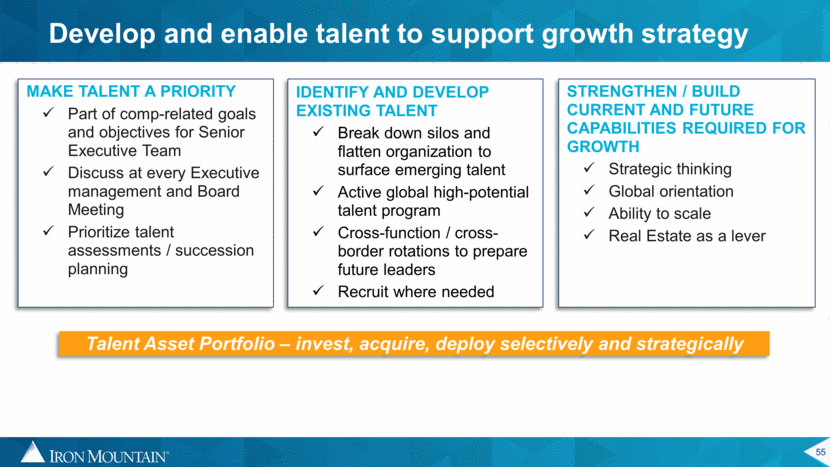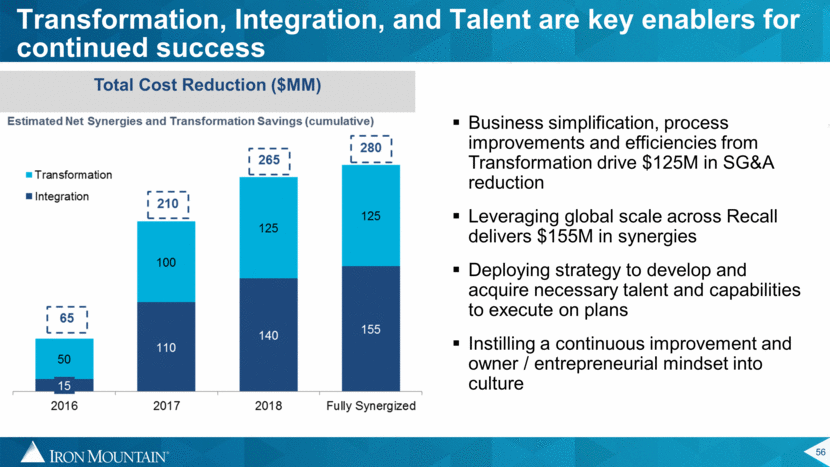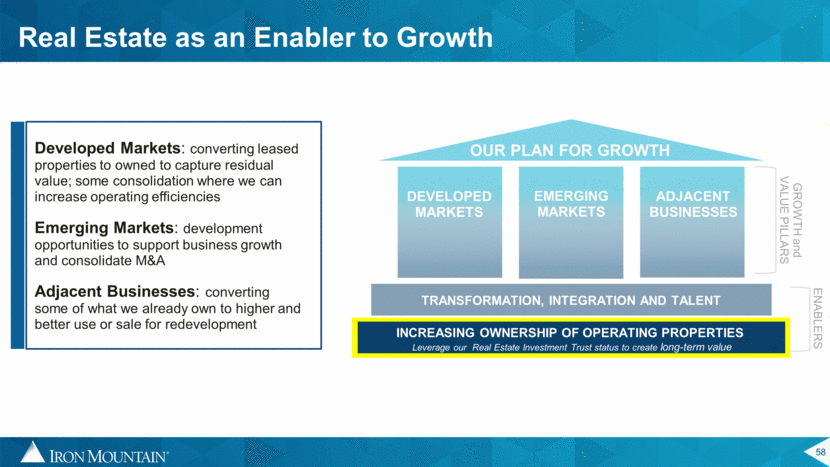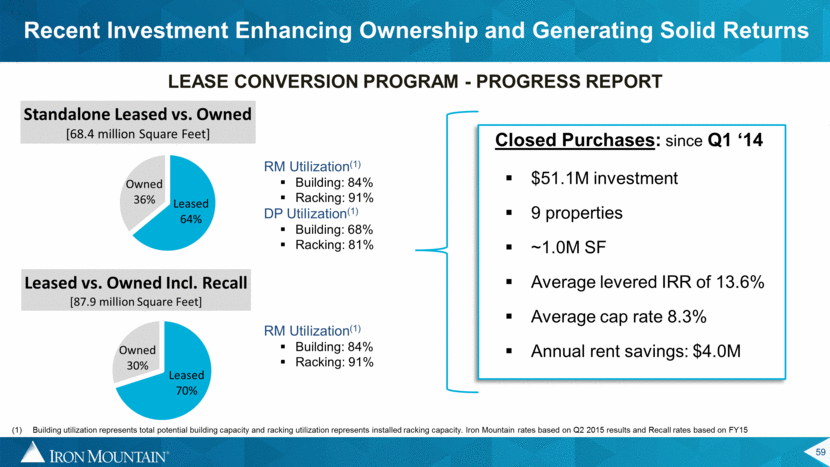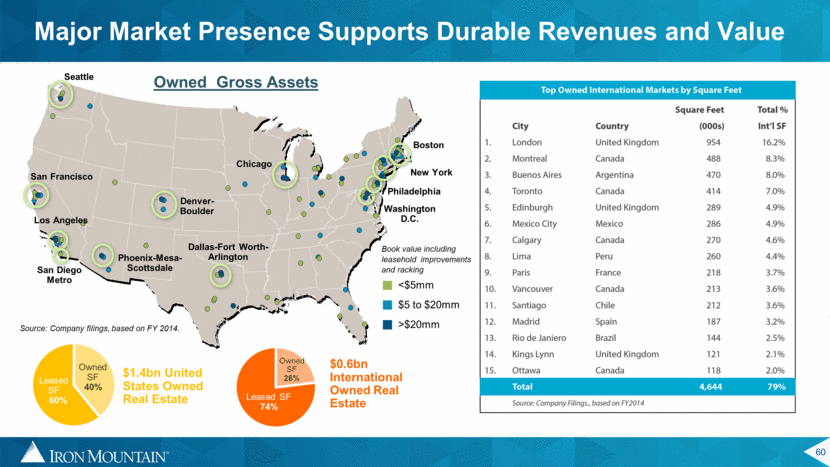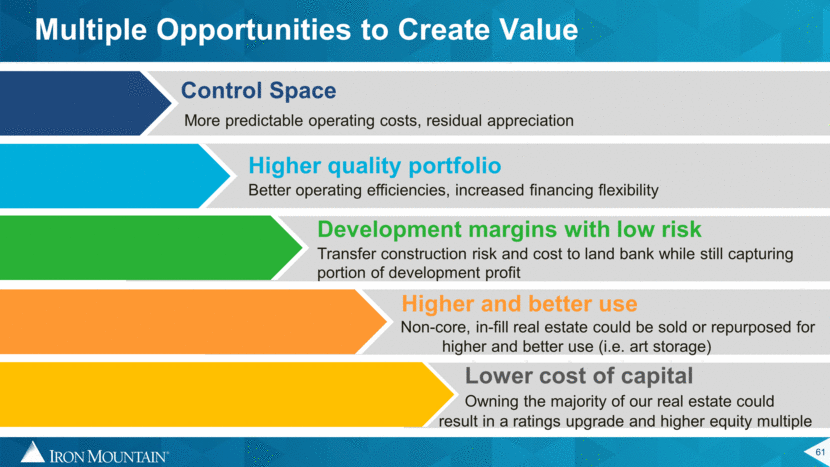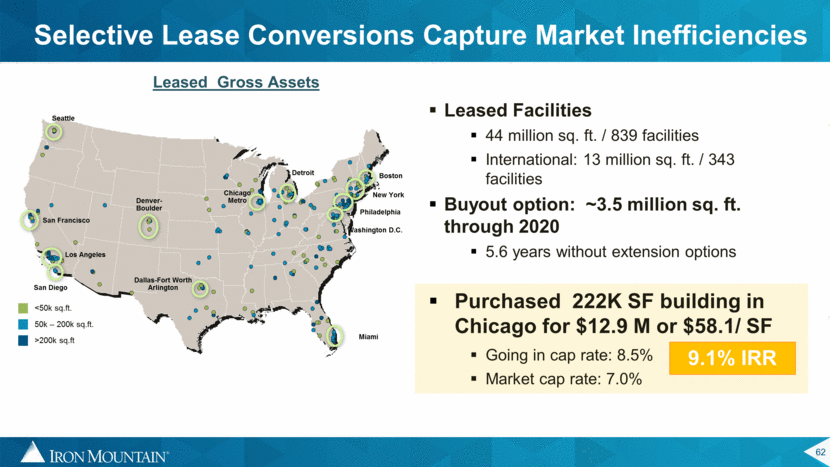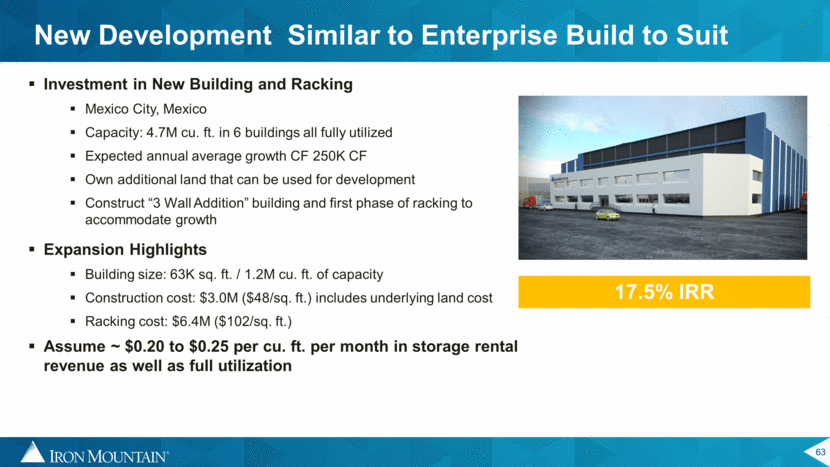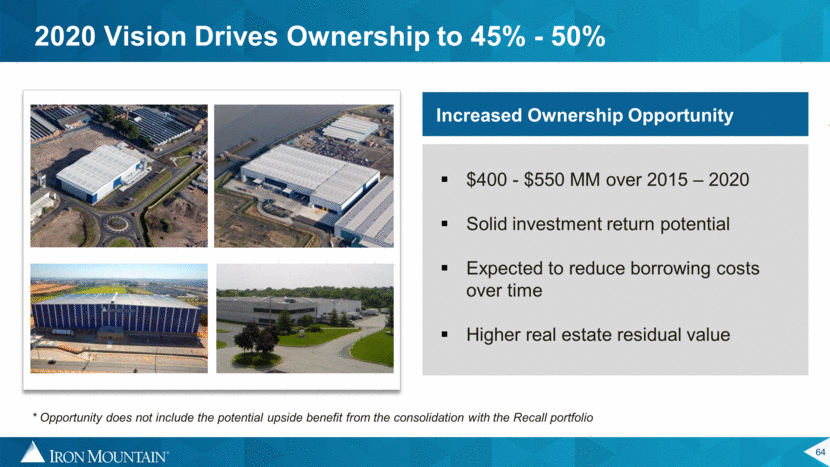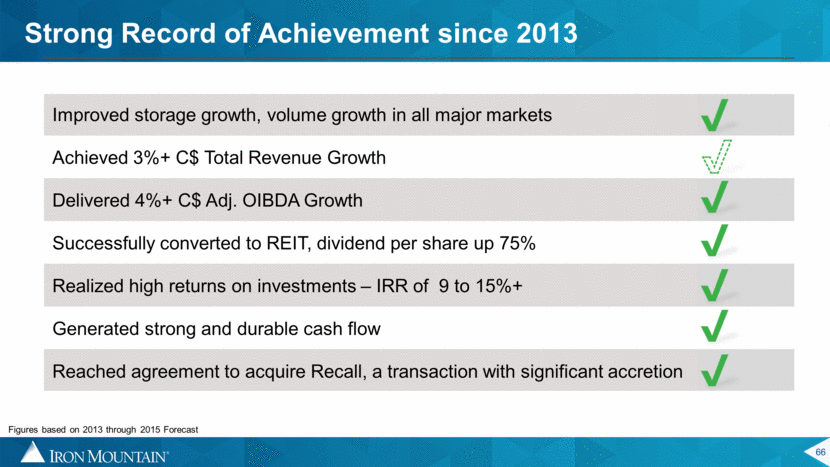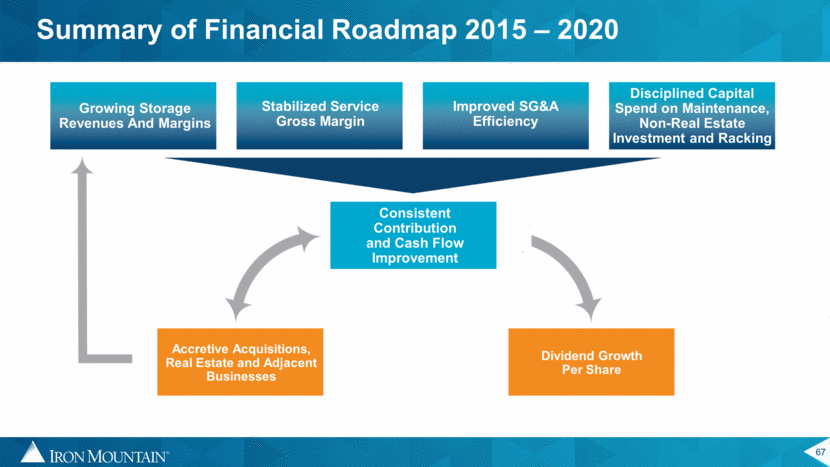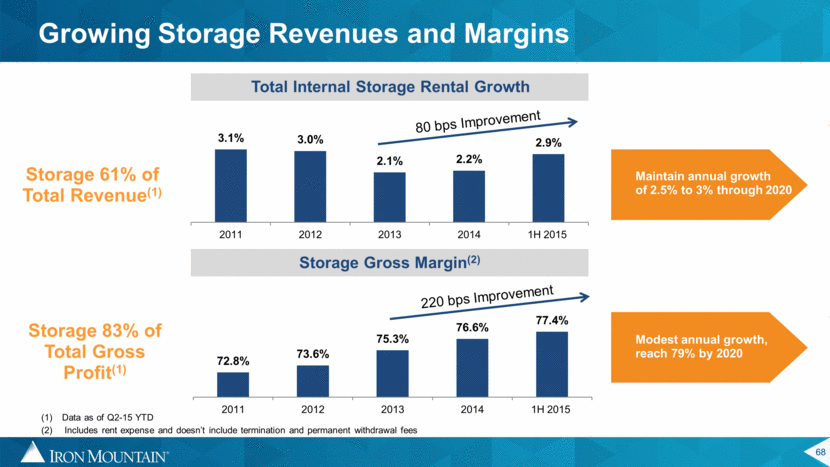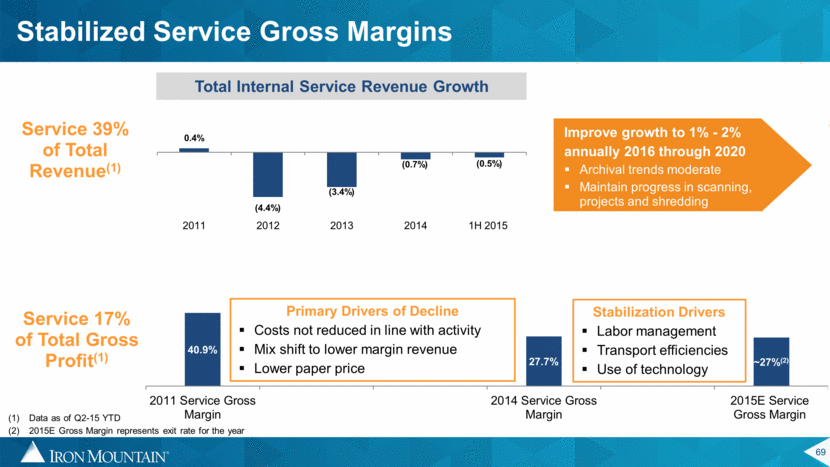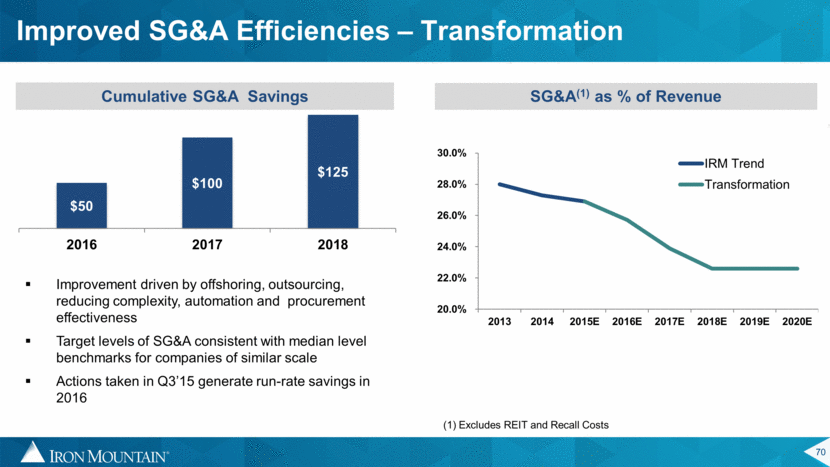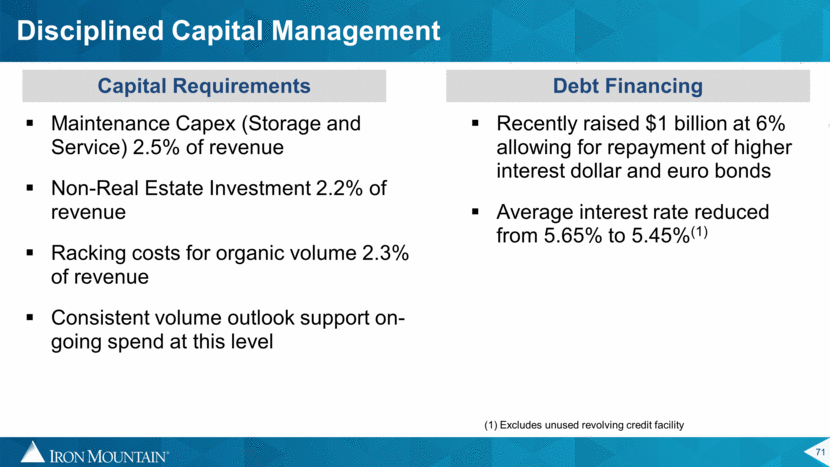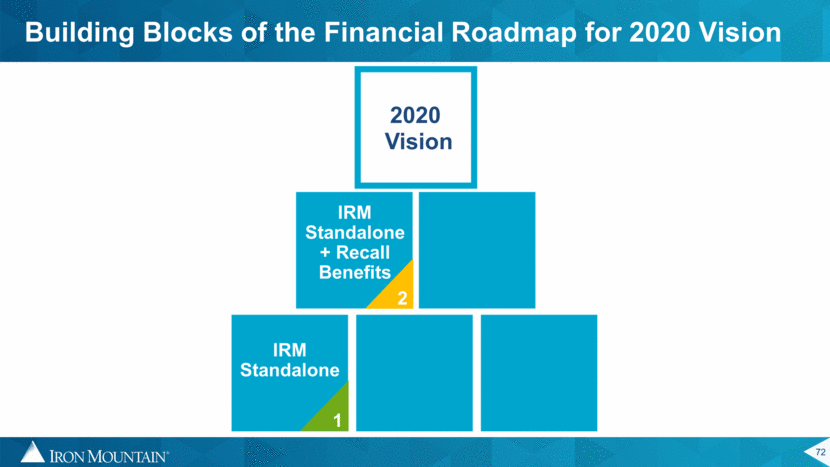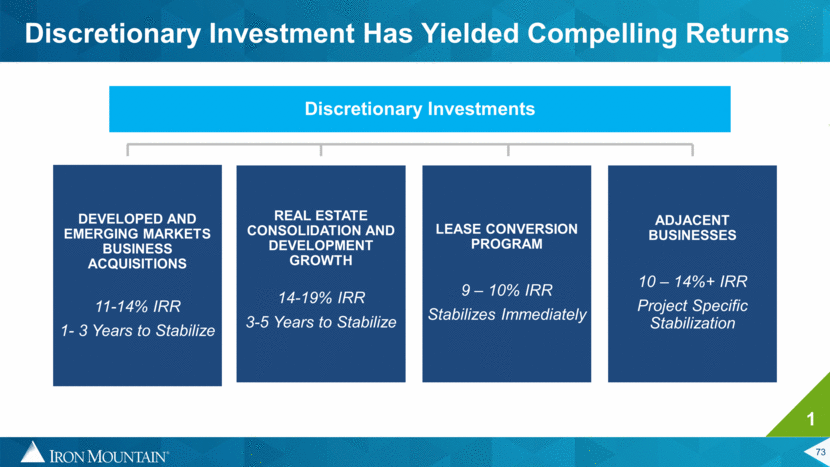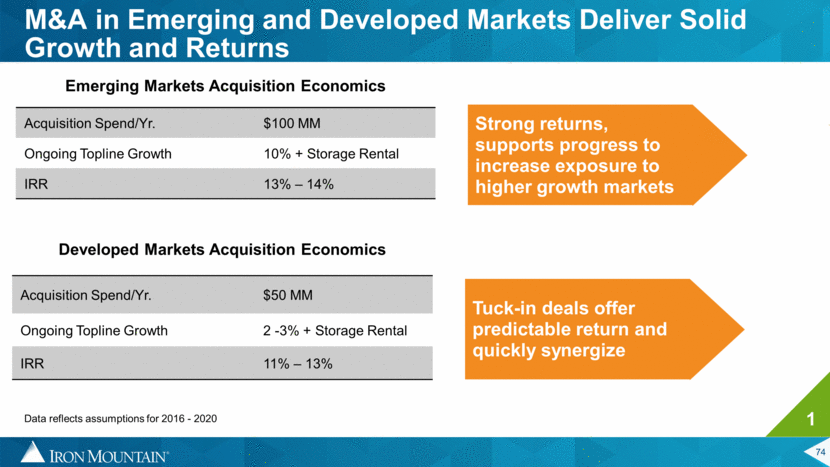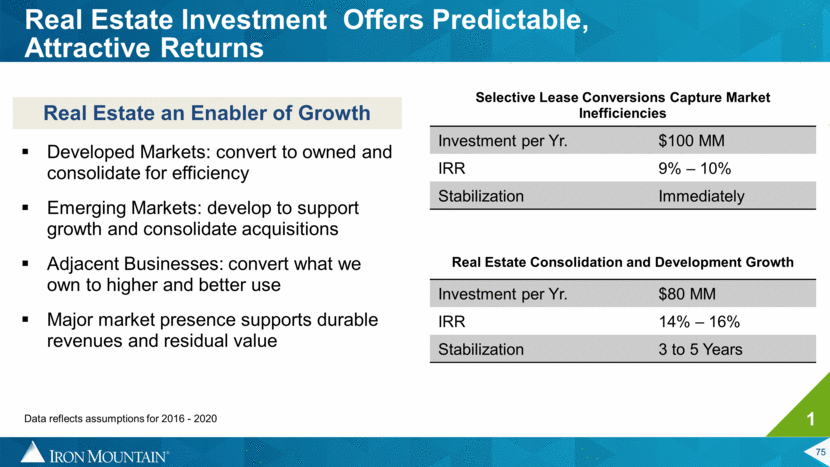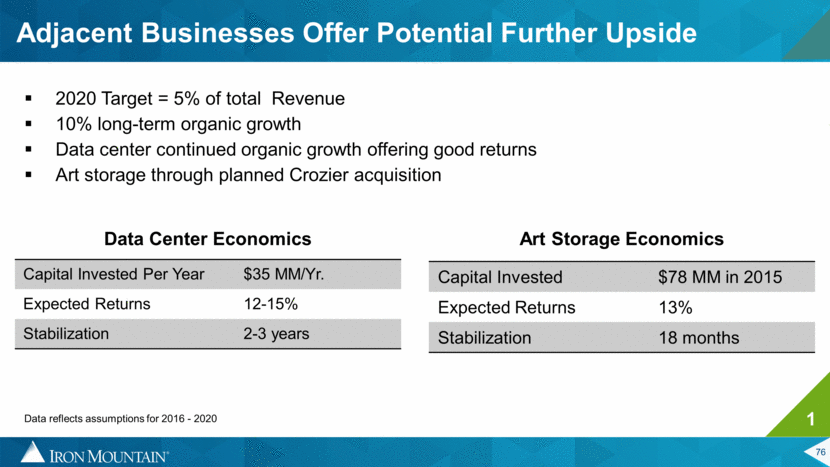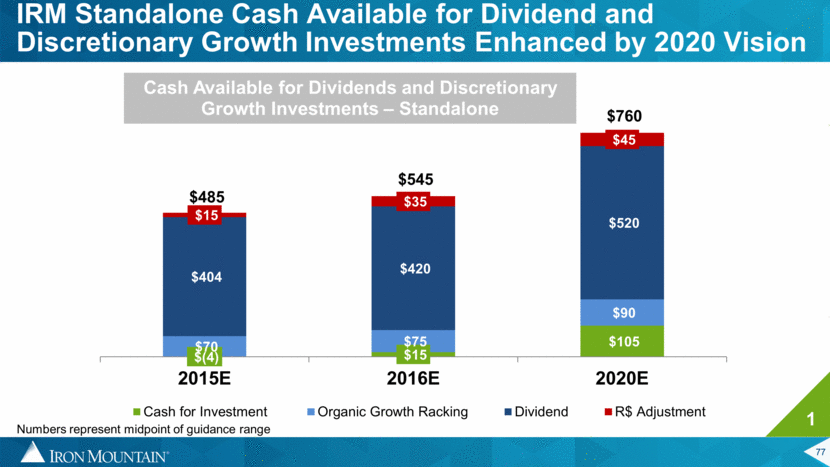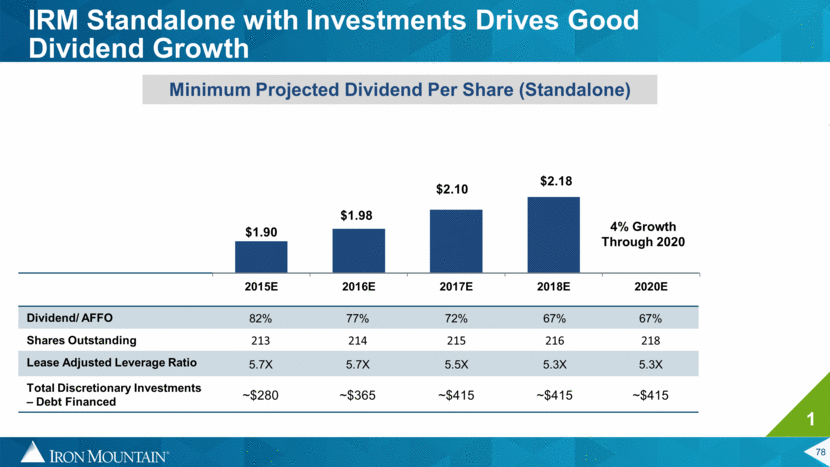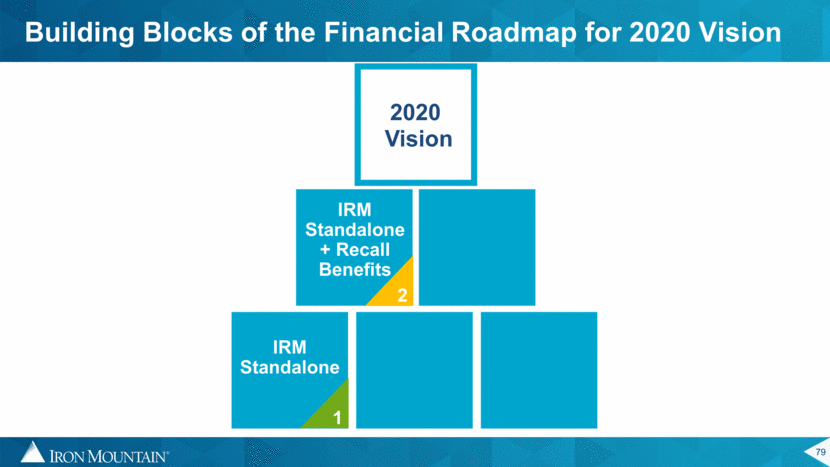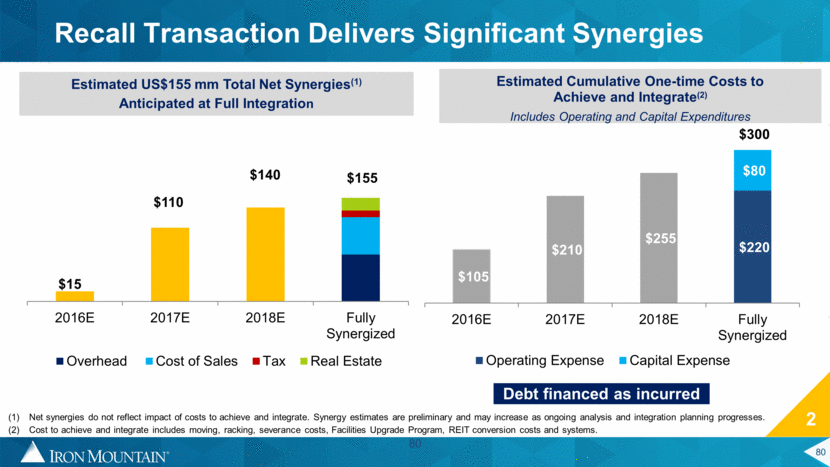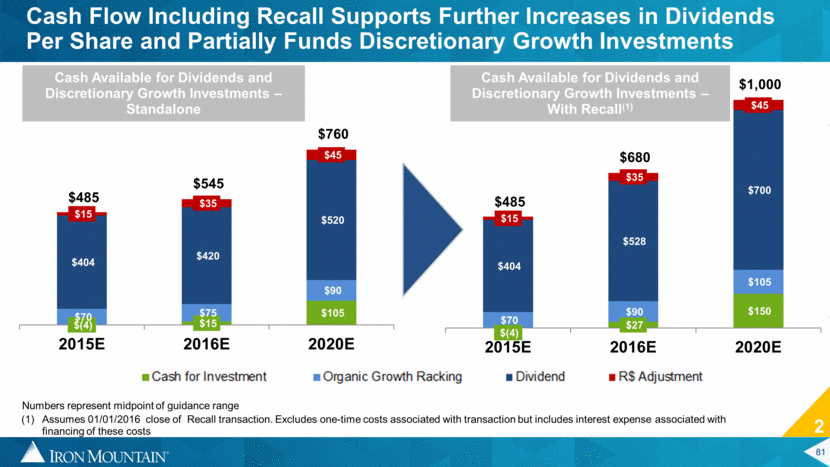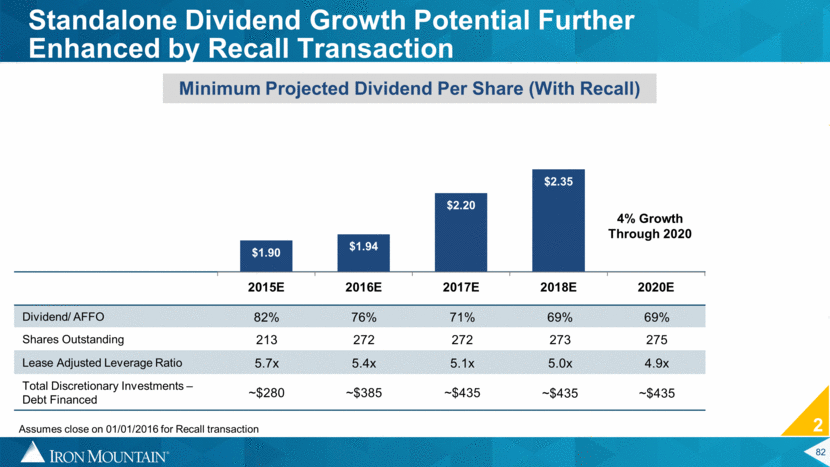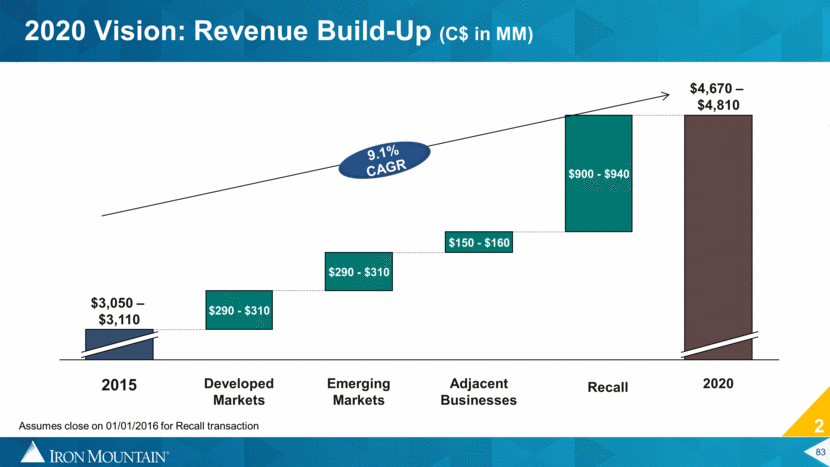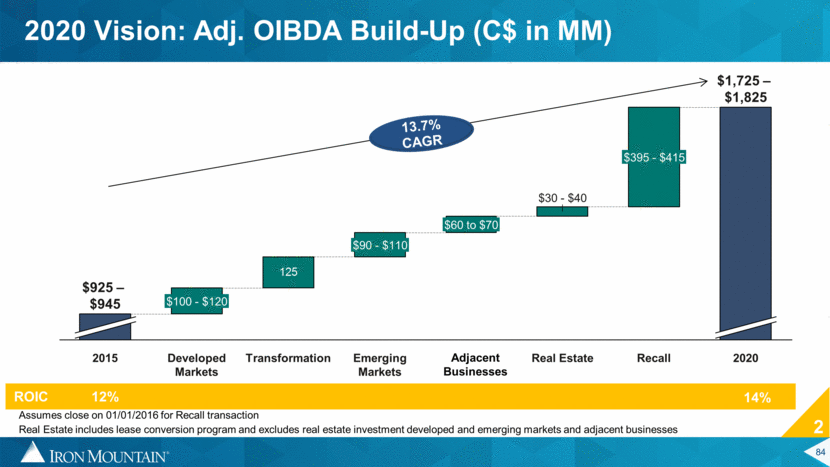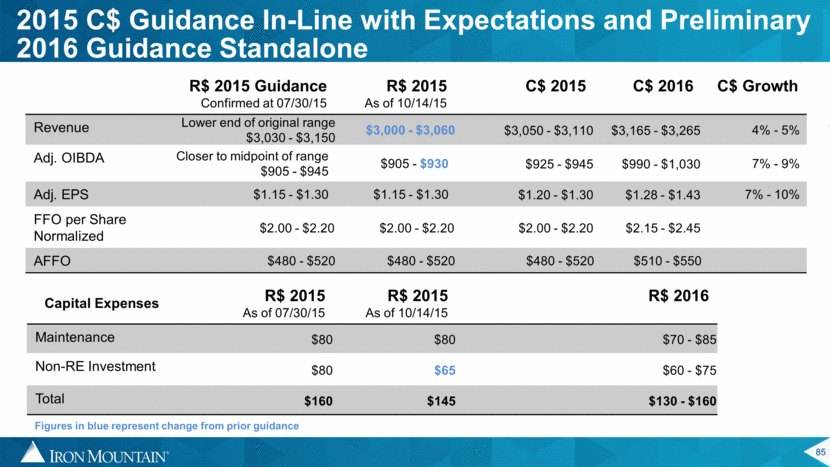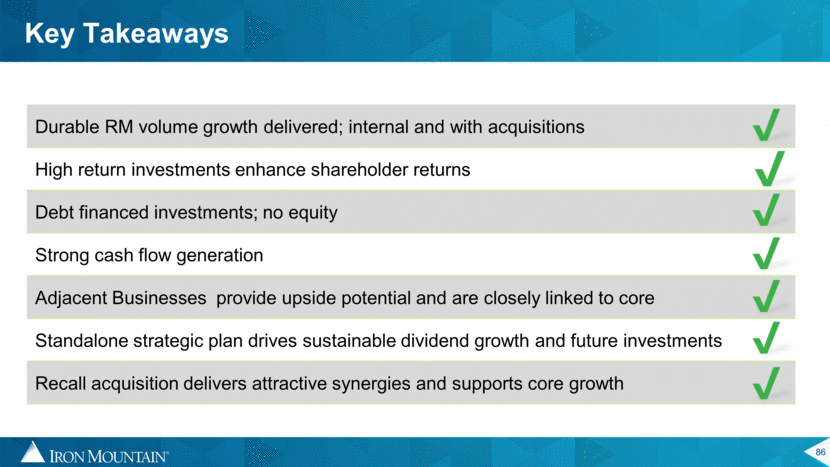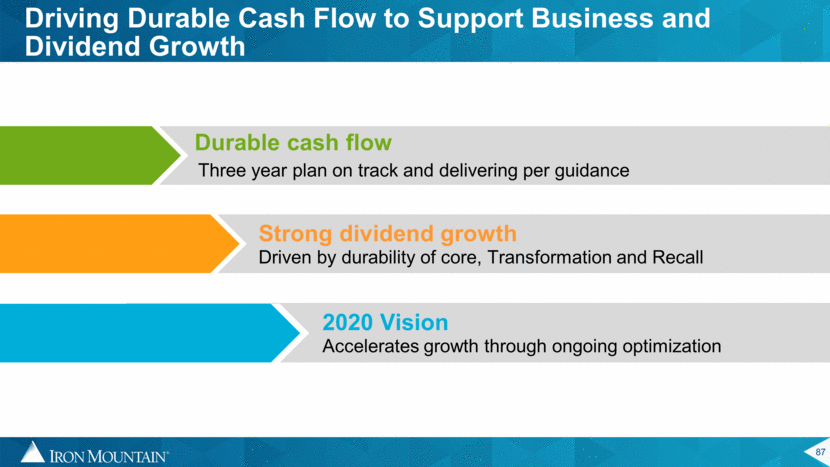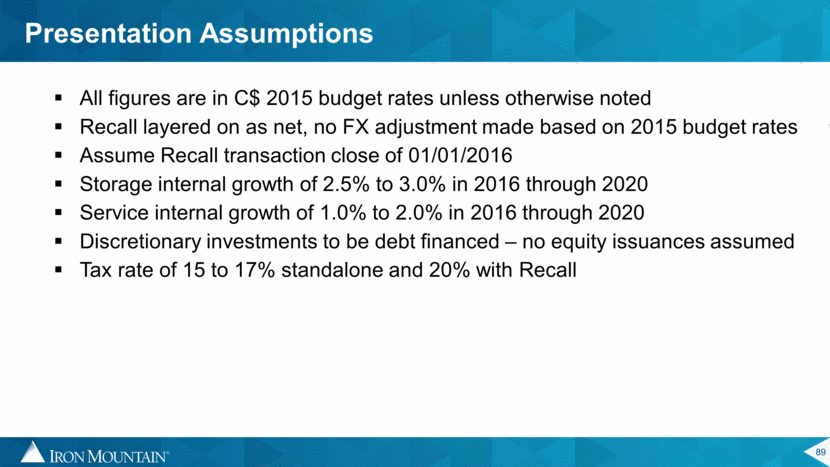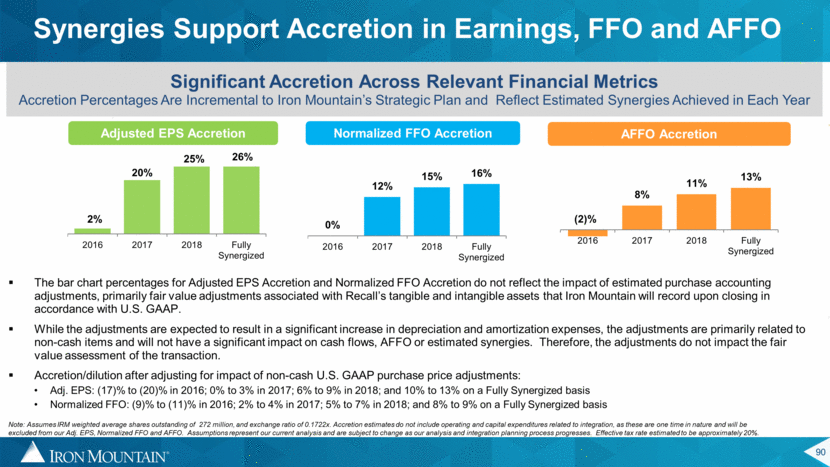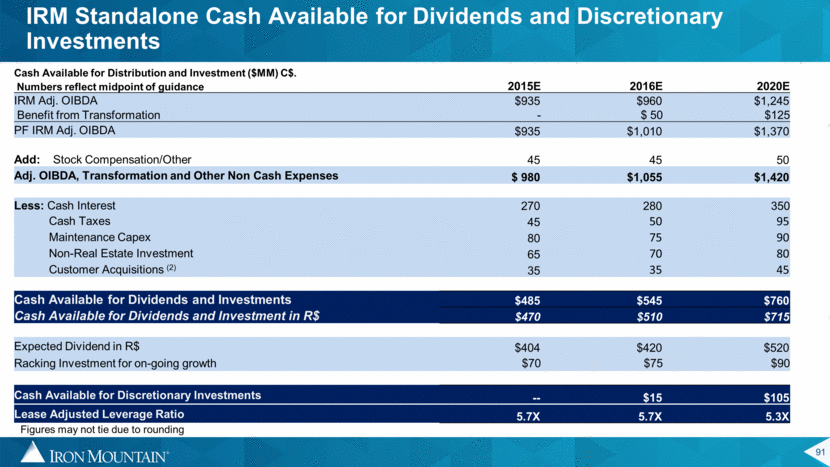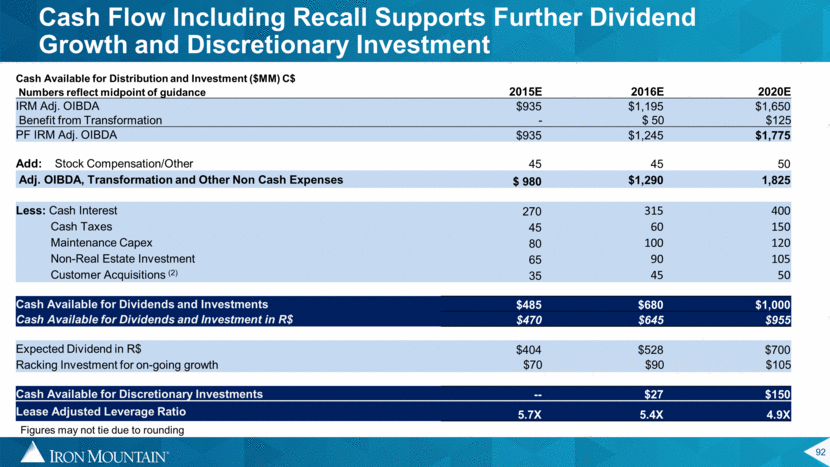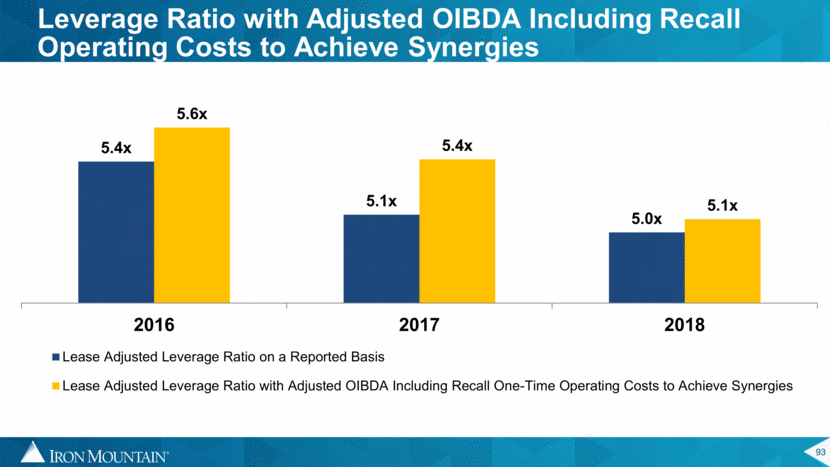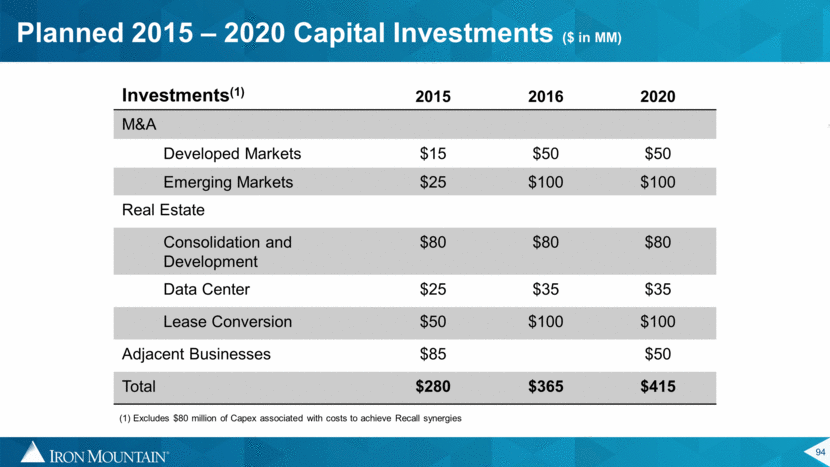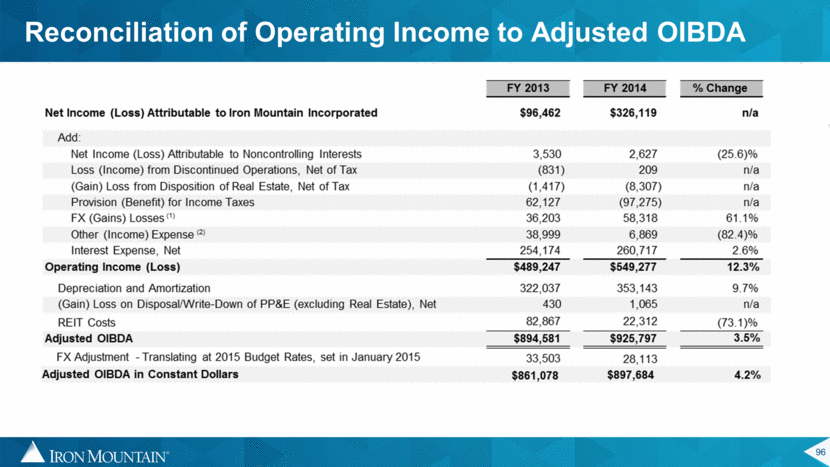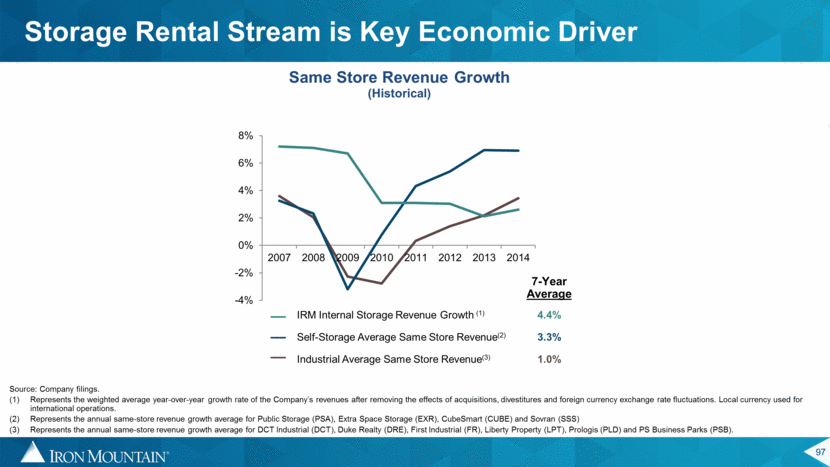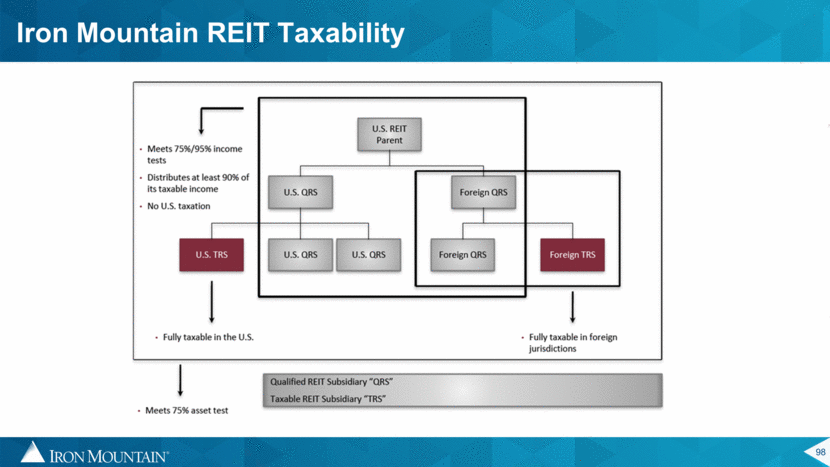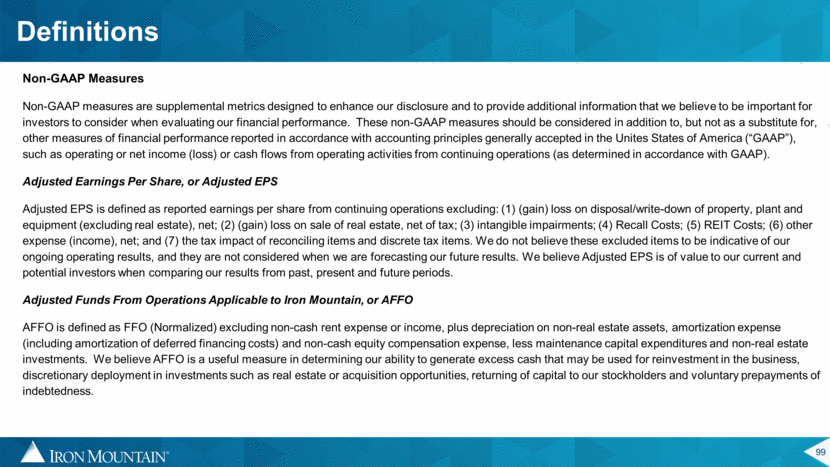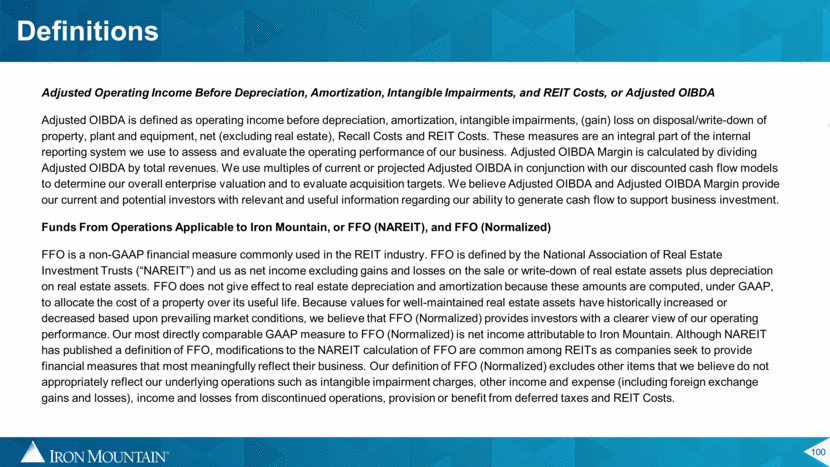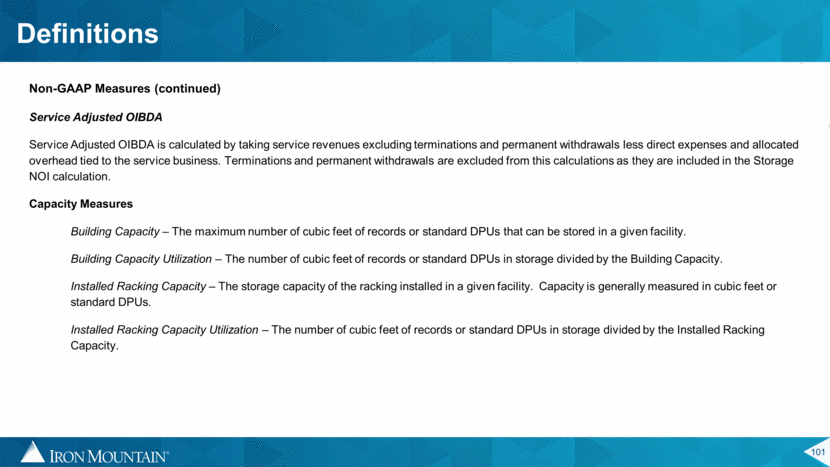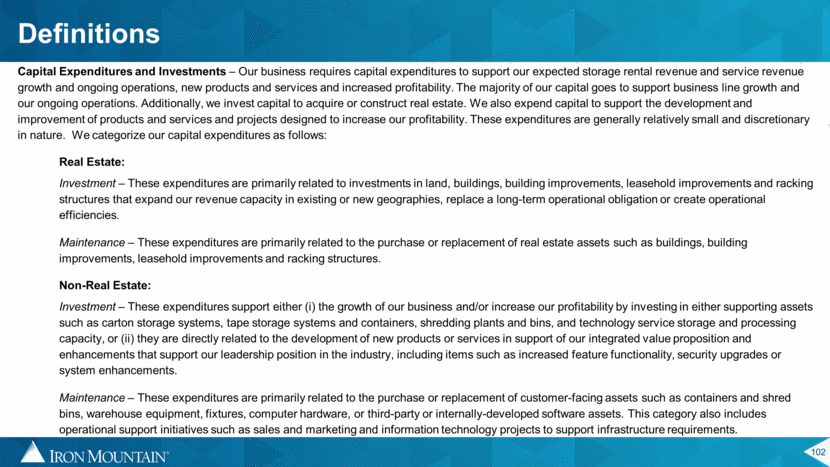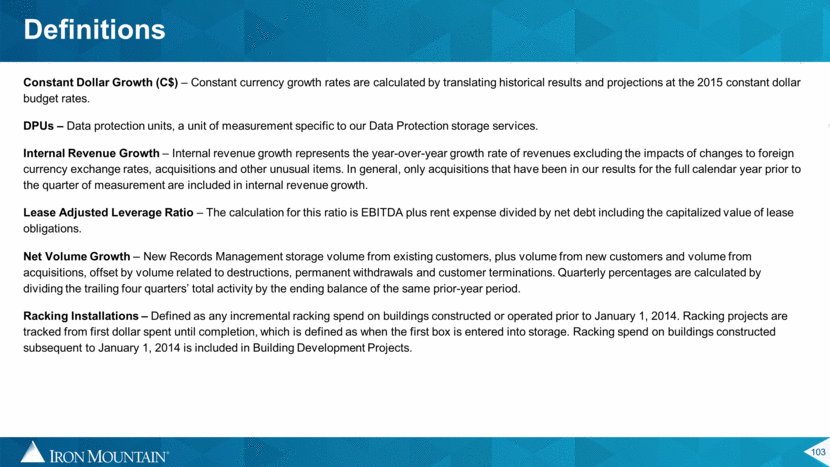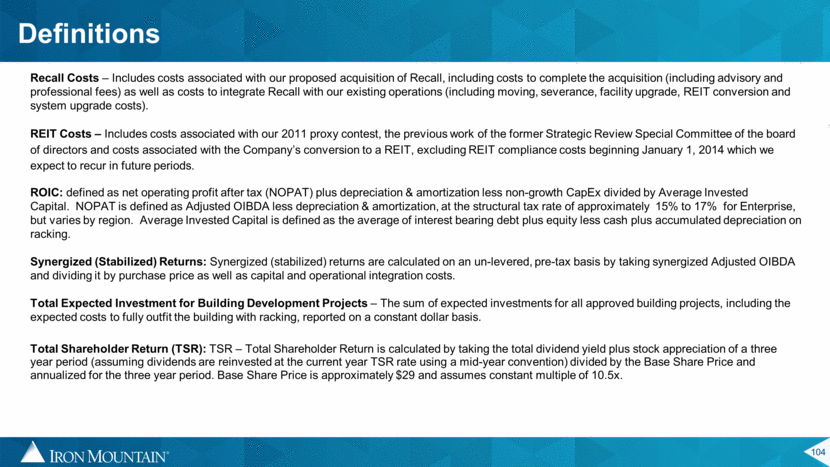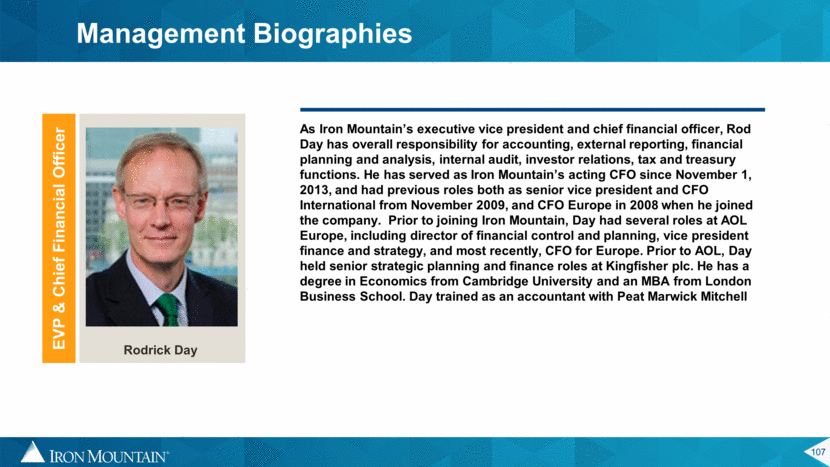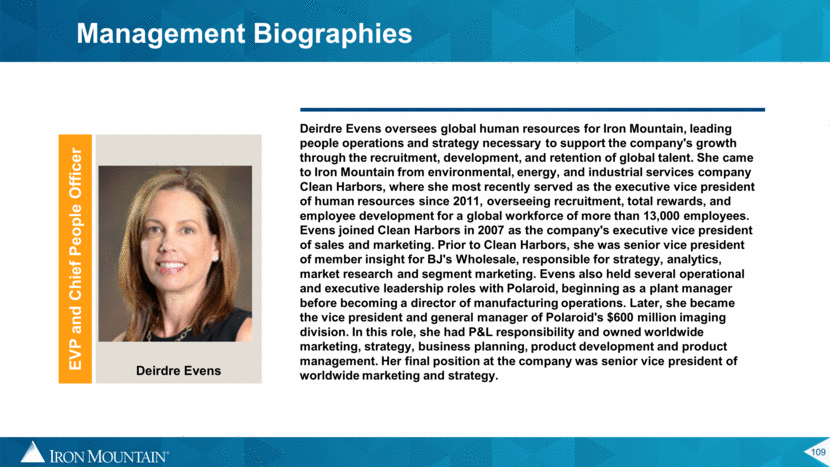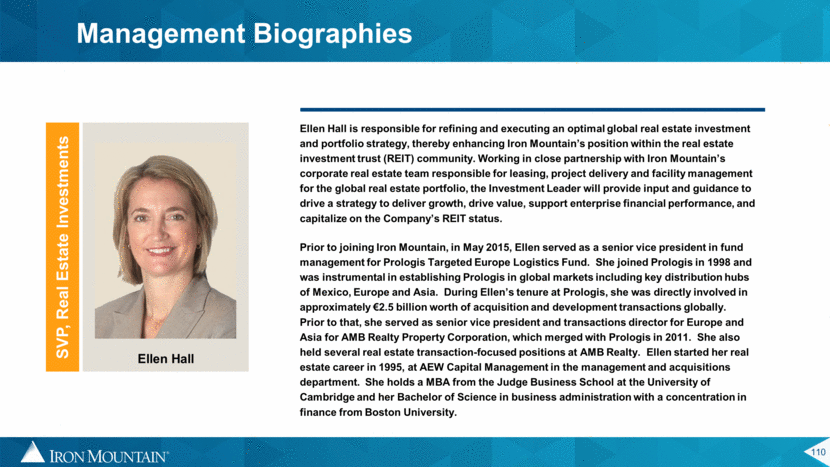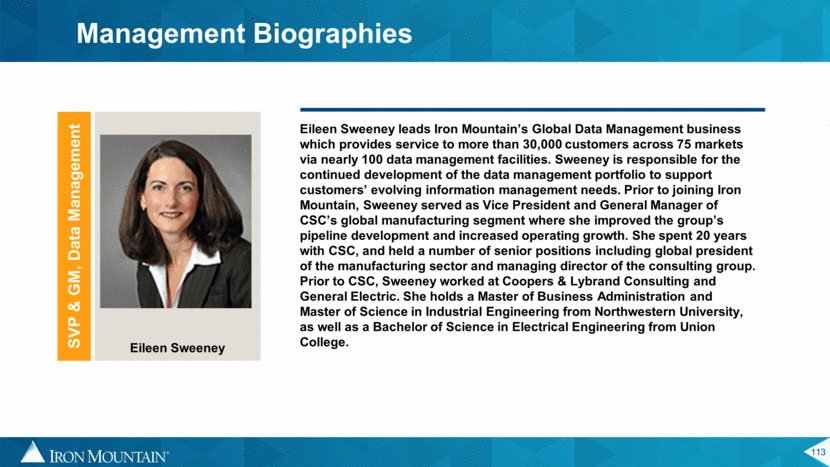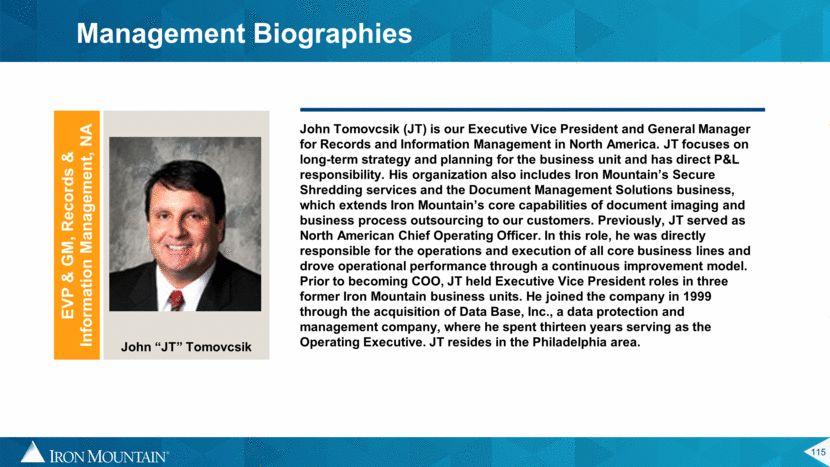Safe Harbor Language and Reconciliation of Non-GAAP Measures Safe Harbor Statement Under the Private Securities Litigation Reform Act of 1995: This presentation contains certain forward-looking statements within the meaning of the Private Securities Litigation Reform Act of 1995 and other securities laws and is subject to the safe-harbor created by such Act. Forward-looking statements include, but are not limited to, our financial performance outlook and shareholder returns in 2015 and through 2020, including after giving effect to our proposed acquisition of Recall Holdings Limited (“Recall”), and statements regarding our operations, economic performance, financial condition, goals, beliefs, future growth strategies, investment objectives, plans and current expectations, such as expected cost savings from our Transformation program, our proposed acquisition of Crozier Fine Arts (“Crozier”), projected revenues from our emerging market acquisition pipeline, valuation creation and returns associated with our data center business and other adjacent businesses, and the benefits associated with increasing the percentage of real estate that we own. These forward-looking statements are subject to various known and unknown risks, uncertainties and other factors. When we use words such as "believes," "expects," "anticipates," "estimates" or similar expressions, we are making forward-looking statements. You should not rely upon forward-looking statements except as statements of our present intentions and of our present expectations, which may or may not occur. Although we believe that our forward-looking statements are based on reasonable assumptions, our expected results may not be achieved, and actual results may differ materially from our expectations. Important factors that could cause actual results to differ from our other expectations include, among others: (i) our expected dividends may be materially different than our estimates; (ii) the cost to comply with current and future laws, regulations and customer demands relating to privacy issues; (iii) the impact of litigation or disputes that may arise in connection with incidents in which we fail to protect our customers' information; (iv) changes in the price for our storage and information management services relative to the cost of providing such storage and information management services; (v) changes in customer preferences and demand for our storage and information management services; (vi) the adoption of alternative technologies and shifts by our customers to storage of data through non-paper based technologies; (vii) the cost or potential liabilities associated with real estate necessary for our business; (viii) the performance of business partners upon whom we depend for technical assistance or management expertise outside the U.S.; (ix) changes in the political and economic environments in the countries in which our international subsidiaries operate; (x) changes in the cost of our debt; (xi) changes in the amount of our capital expenditures; (xii) our ability to remain qualified for taxation as a real estate investment trust; (xiii) our ability or inability to complete acquisitions on satisfactory terms and to integrate acquired companies efficiently, including Crozier; and (xiv) other trends in competitive or economic conditions affecting our financial condition or results of operations not presently contemplated. In addition, with respect to the potential Recall transaction, our ability to close the proposed transaction in accordance with its terms and within the anticipated time period, or at all, is dependent on our and Recall's ability to satisfy the closing conditions for the transaction, including the receipt of governmental and shareholder approvals, and the benefits of the potential Recall transaction, including potential cost synergies and other synergies (including tax synergies), may not be fully realized or may take longer to realize than expected. Additional risks and factors that may affect results are set forth in our filings with the Securities and Exchange Commission, including our Annual Report on Form 10-K for the fiscal year ending December 31, 2014, our current report on Form 8-K, filed with the SEC on May 7, 2015 and our quarterly report on From 10-Q for the fiscal quarter ending June 30, 2015 and in Recall’s filings with the Australian Stock Exchange, including Recall’s Annual Report for the fiscal year ending June 30, 2015. Except as required by law, we undertake no obligation to release publicly the result of any revision to these forward-looking statements that may be made to reflect events or circumstances after the date hereof or to reflect the occurrence of unanticipated events. Reconciliation of Non-GAAP Measures: Throughout this presentation, Iron Mountain will be discussing Adjusted Operating Income Before Depreciation, Amortization and Intangible Impairments (Adjusted OIBDA), which does not conform to accounting principles generally accepted in the United States (GAAP). For additional information and the reconciliation of these measures to the appropriate GAAP measure, , as required by Securities and Exchange Commission Regulation G, please see the appendix of this presentation.
